Dominic Cummings has said that he drove to Barnard Castle with his wife and child at the end of his lockdown-busting trip to County Durham in order to test his eyesight before making the long drive home to London.
Sightings of the senior Downing Street aide by members of the public in the pretty Teesdale town on 12 April – Easter Sunday – have been one of the most controversial elements of his 260-mile trip at a time when both he and wife Mary were showing symptoms of Covid-19, prompting allegations that they were enjoying a day out rather than self-isolating.
But Mr Cummings dismissed suggestions that the trip to the town, around 30 miles from Durham, was made for leisure or sightseeing purposes.
Download the new Independent Premium app
Sharing the full story, not just the headlines
Instead, he insisted that they wanted to be sure that he was in a fit state to undertake the long drive back to the capital. He had sat by the river in order to recover from a brief bout of sickness and was seen with his wife and child in a nearby wood because they had stopped the car to allow the young boy to relieve himself when he needed the toilet, he said.
Covid-19 has not previously been linked to damage to eyesight, but Boris Johnson suggested that he too experienced problems with his vision following his own bout of coronavirus.
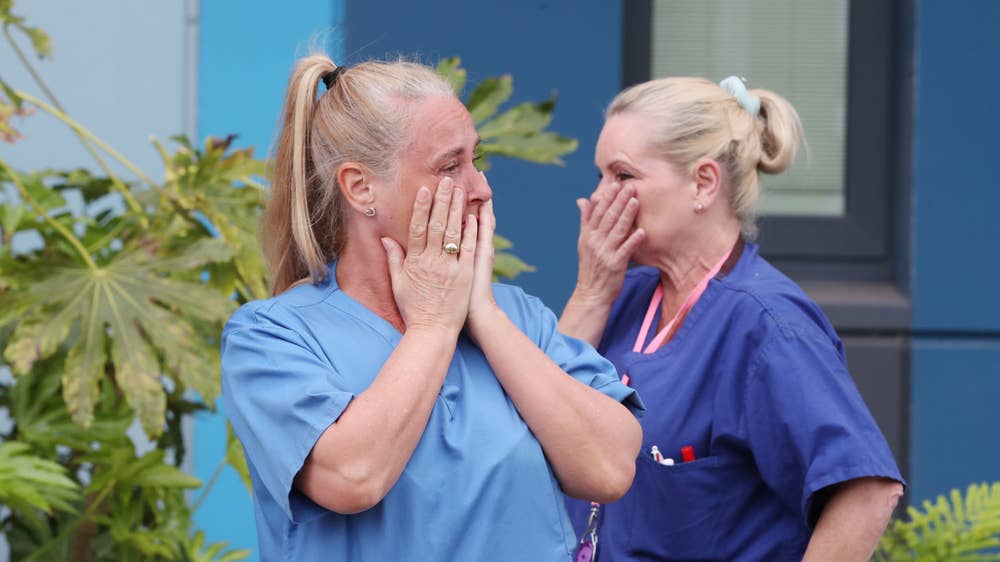
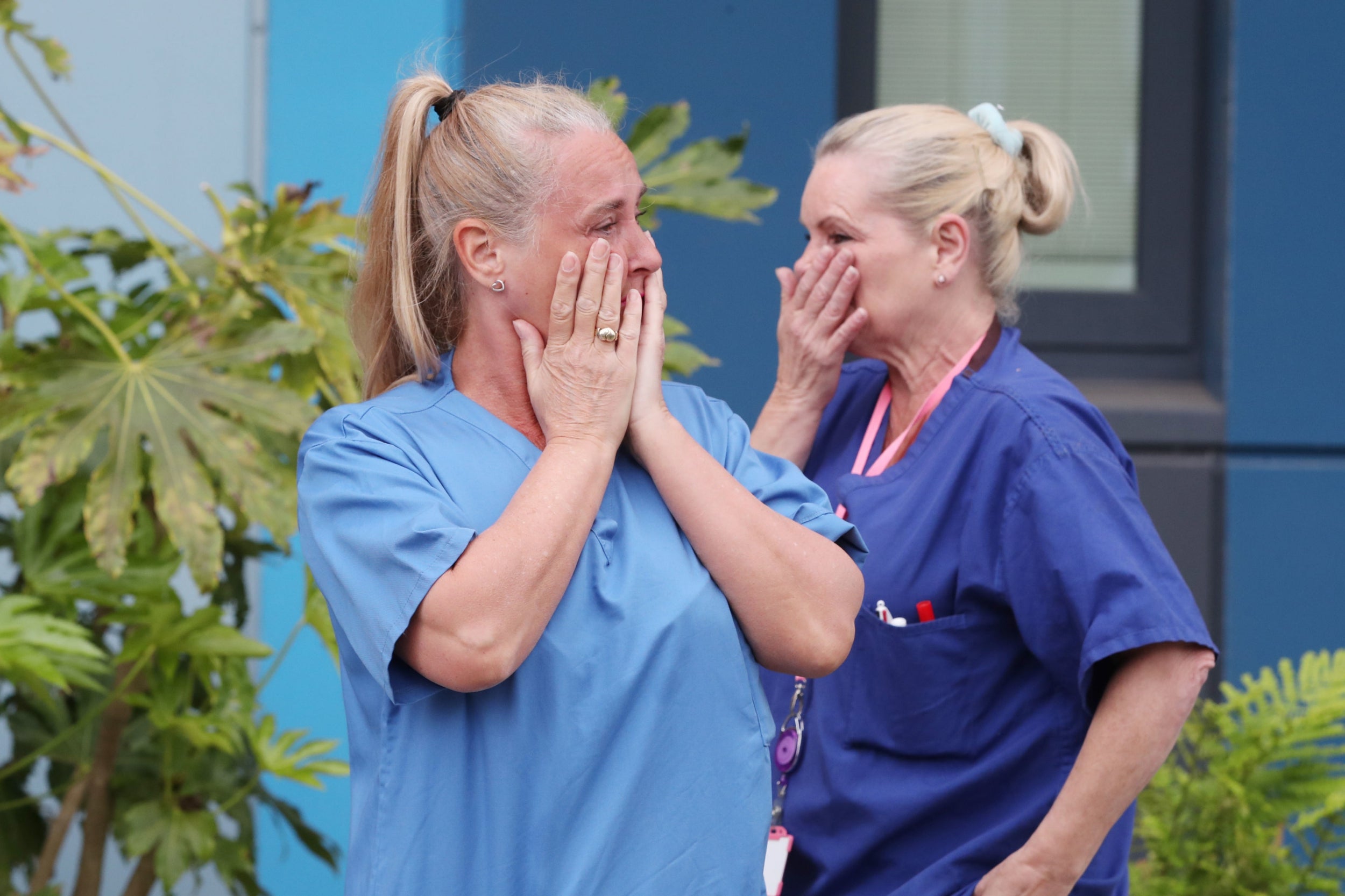
1/30
Staff react outside Salford Royal Hospital in Manchester during a minute’s silence to pay tribute to the NHS staff and key workers who have died during the coronavirus outbreak
PA
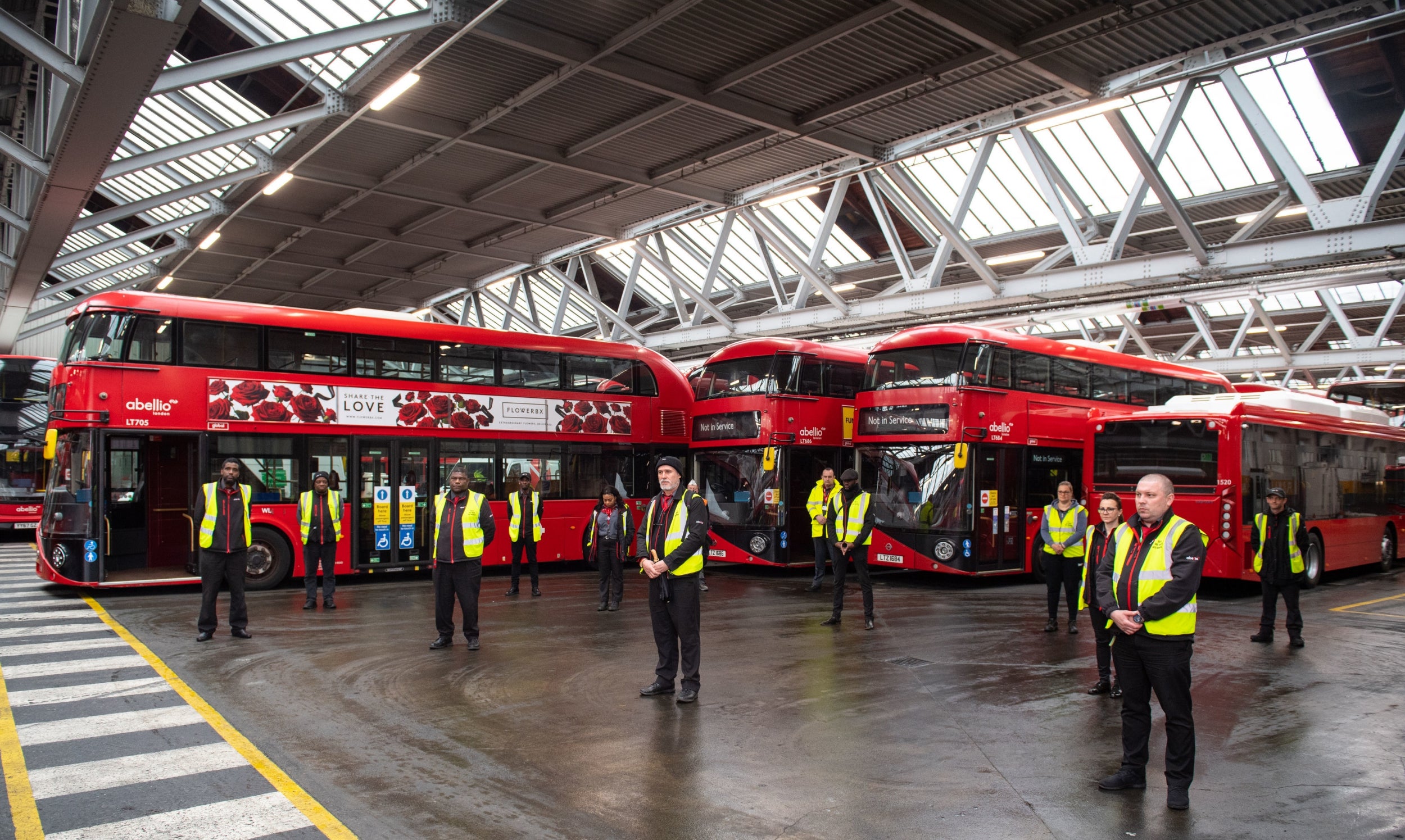
2/30
Staff inside Camberwell bus depot in London, during a minute’s silence
PA
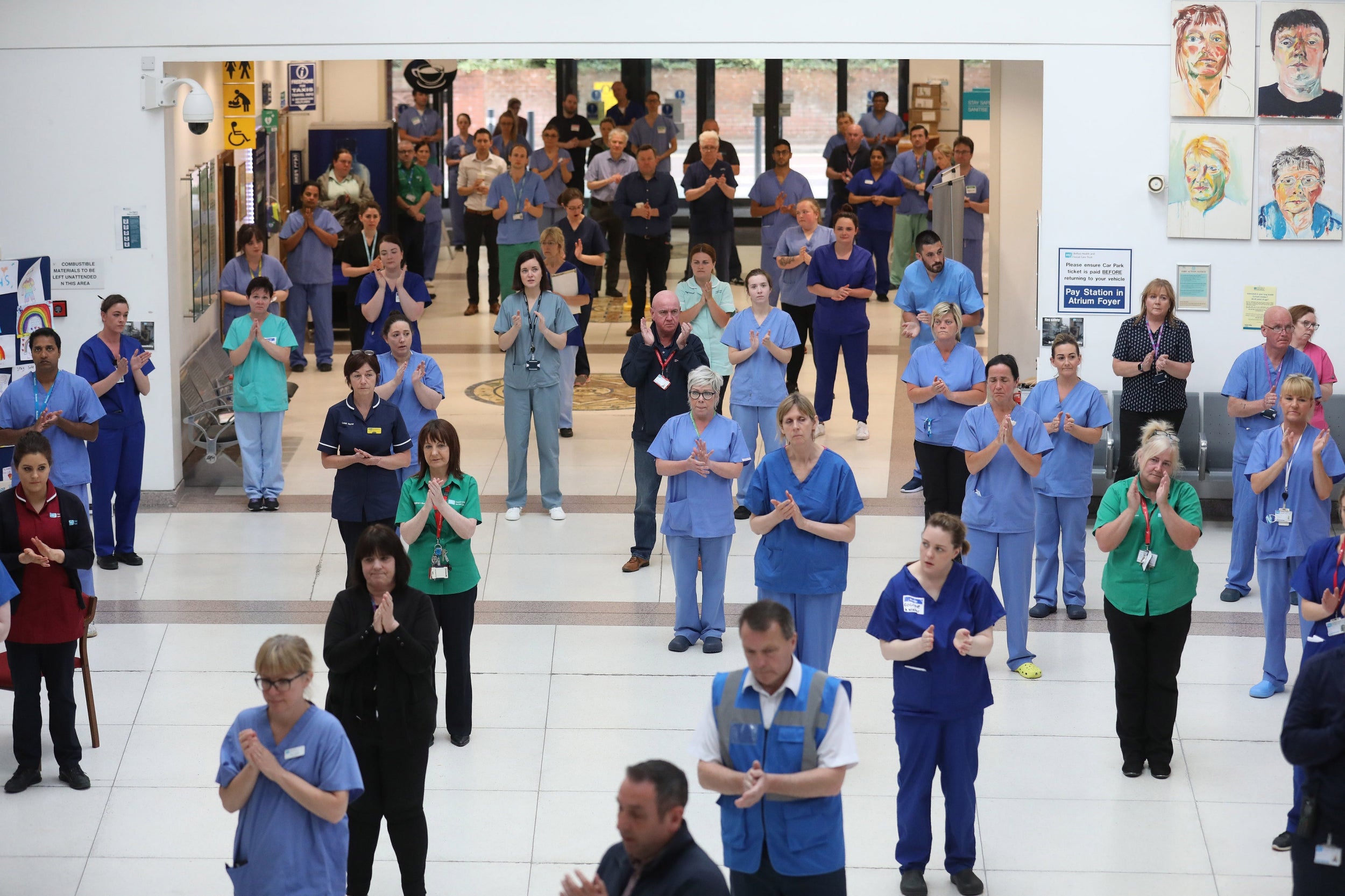
3/30
NHS staff at the Mater hospital in Belfast, during a minute’s silence to pay tribute to the NHS staff and key workers who have died during the coronavirus outbreak.
PA
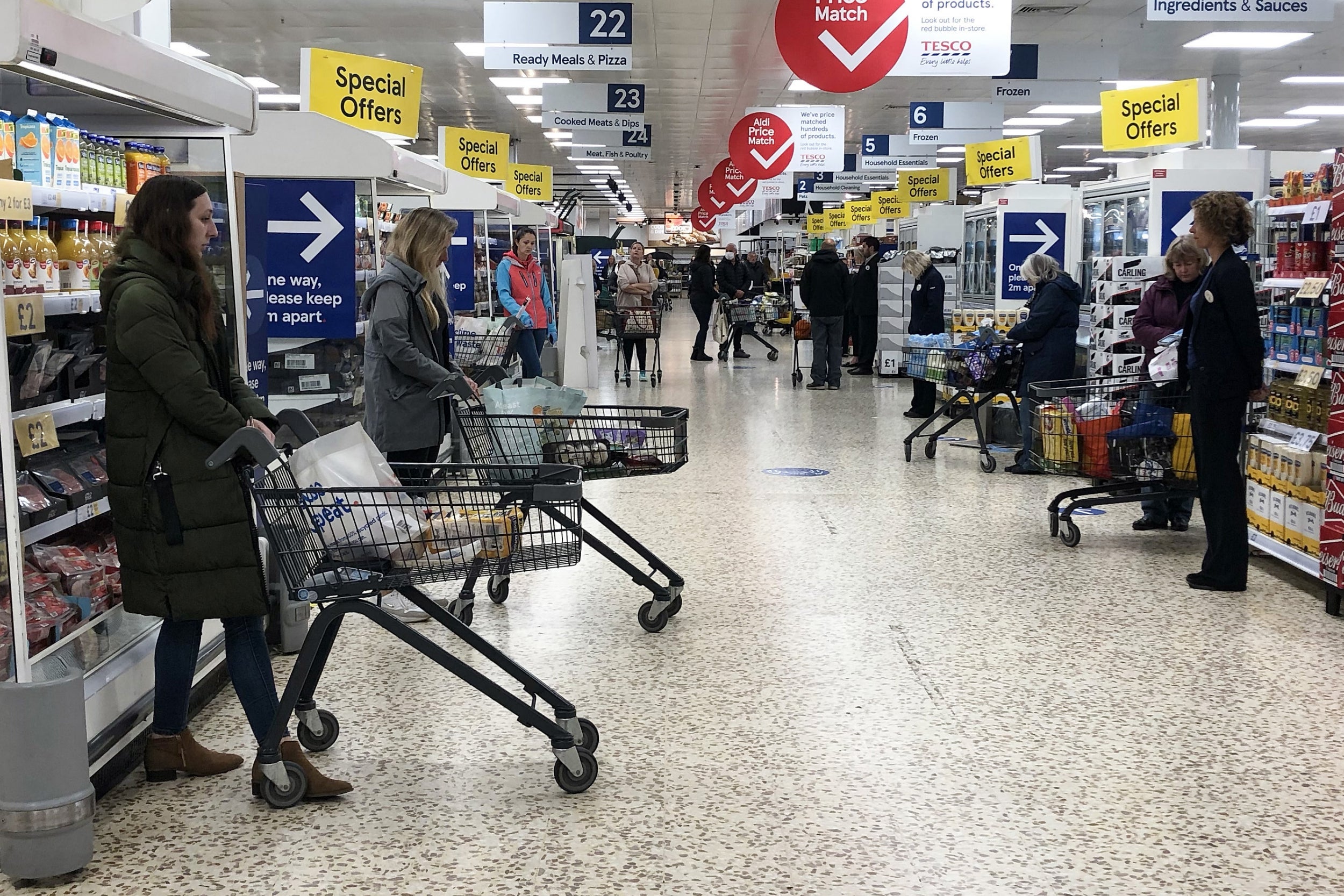
4/30
Shoppers observe a minute’s silence in Tescos in Shoreham
Getty
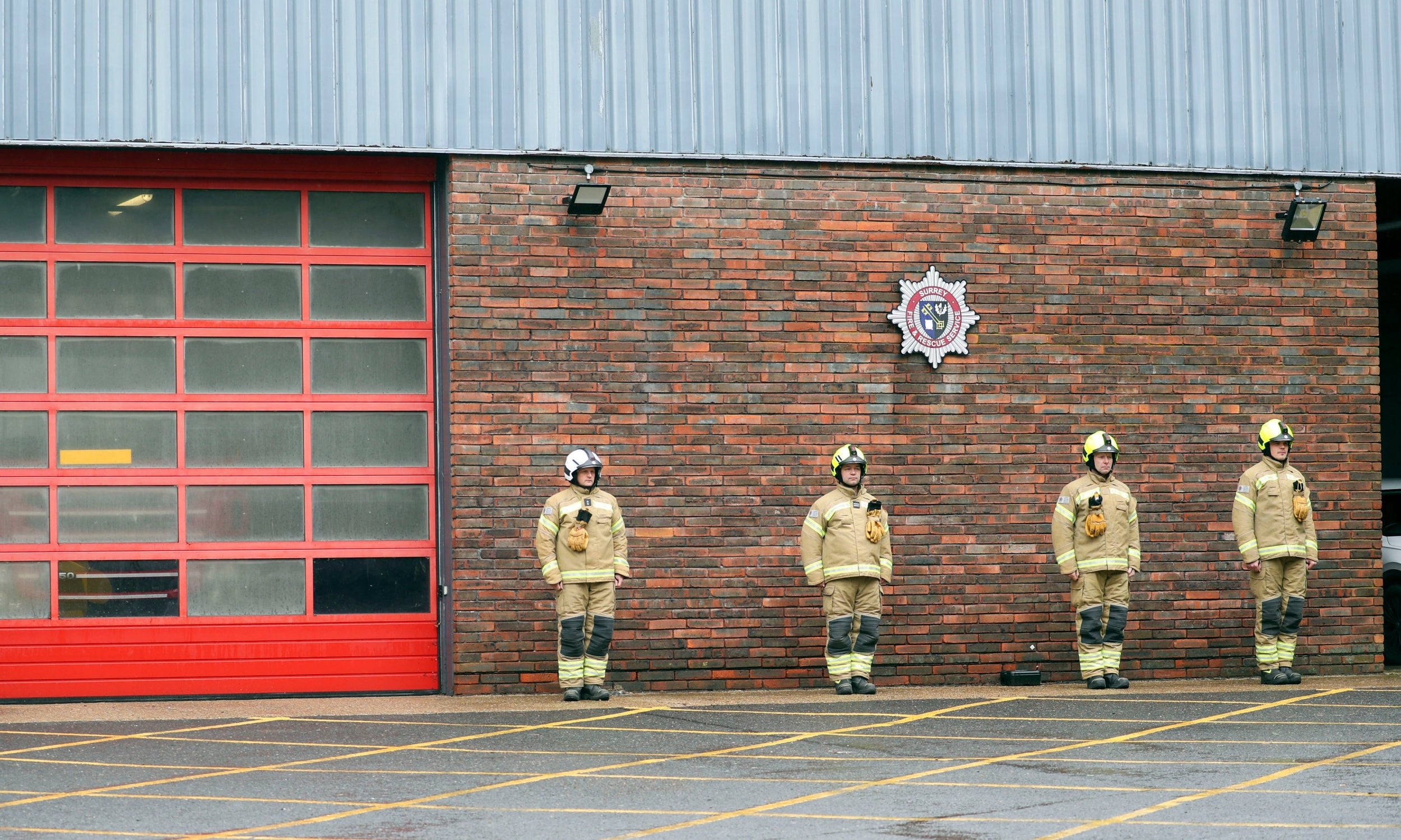
5/30
Firefighters outside Godstone fire station
PA
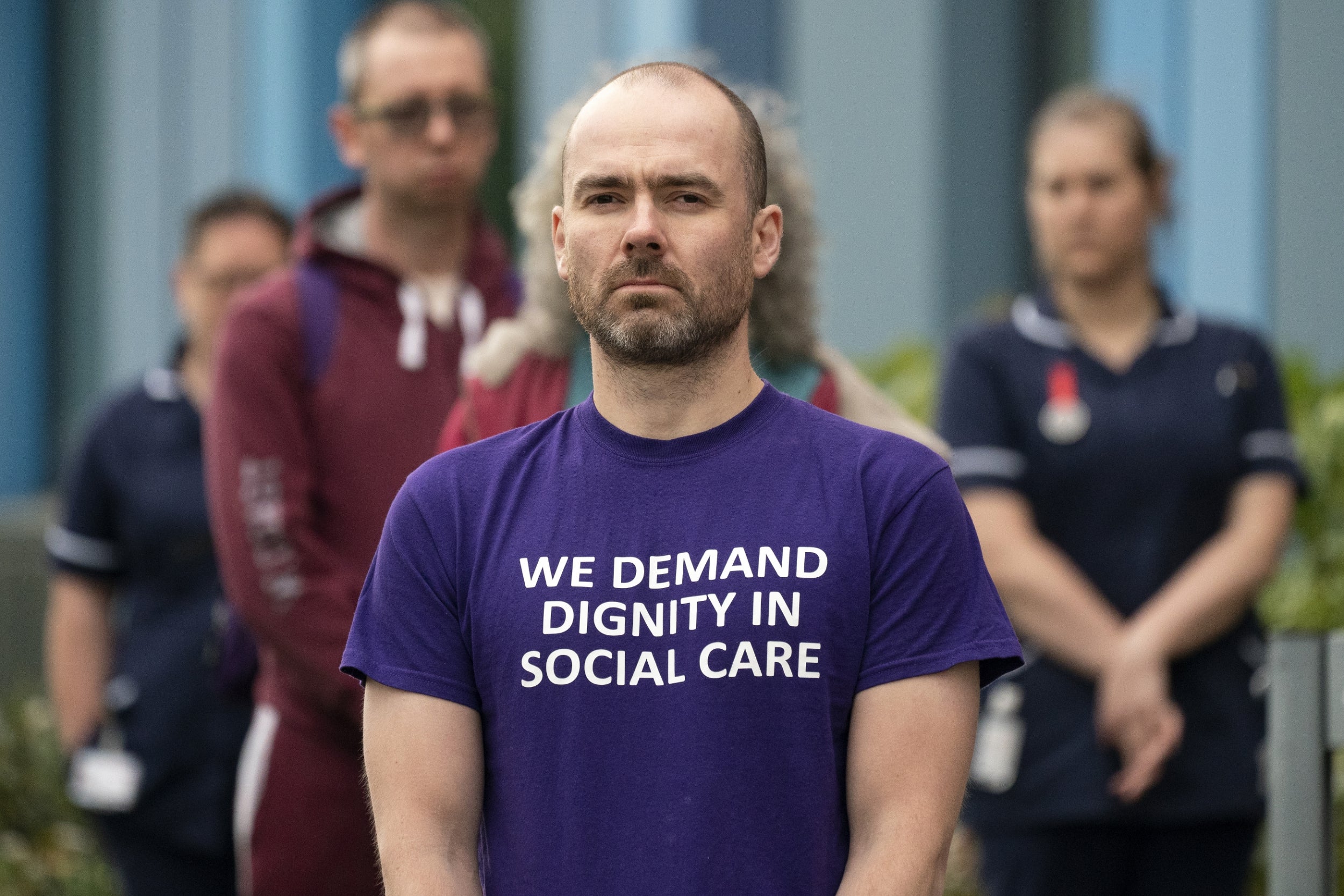
6/30 Salford Royal Hospital
Getty
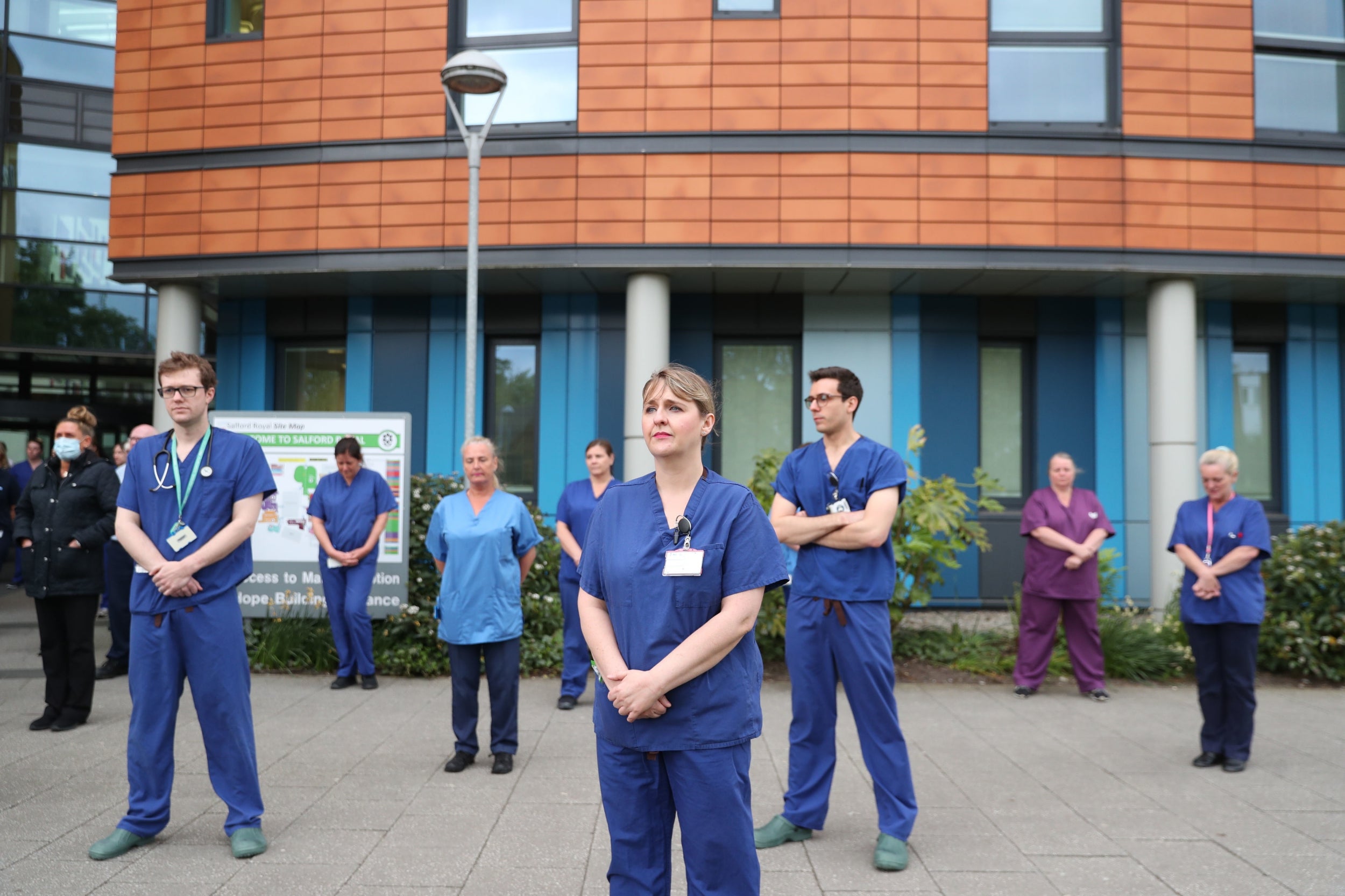
7/30 Salford Royal Hospital
PA
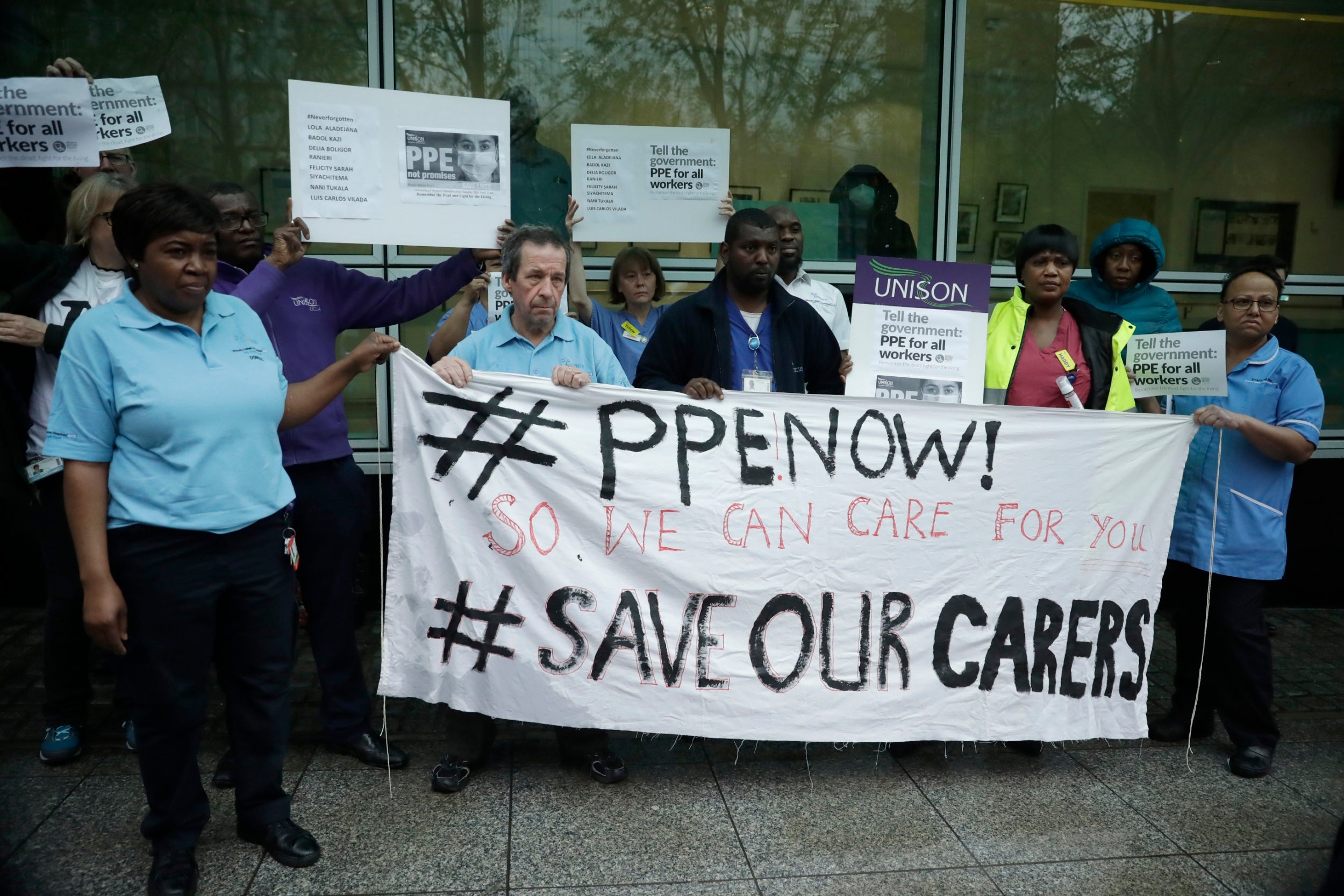
8/30
Hospital workers take part in a protest calling on the British government to provide PPE across Britain for all workers in care, the NHS and other vital public services after a nationwide minute’s silence at University College Hospital in London
AP
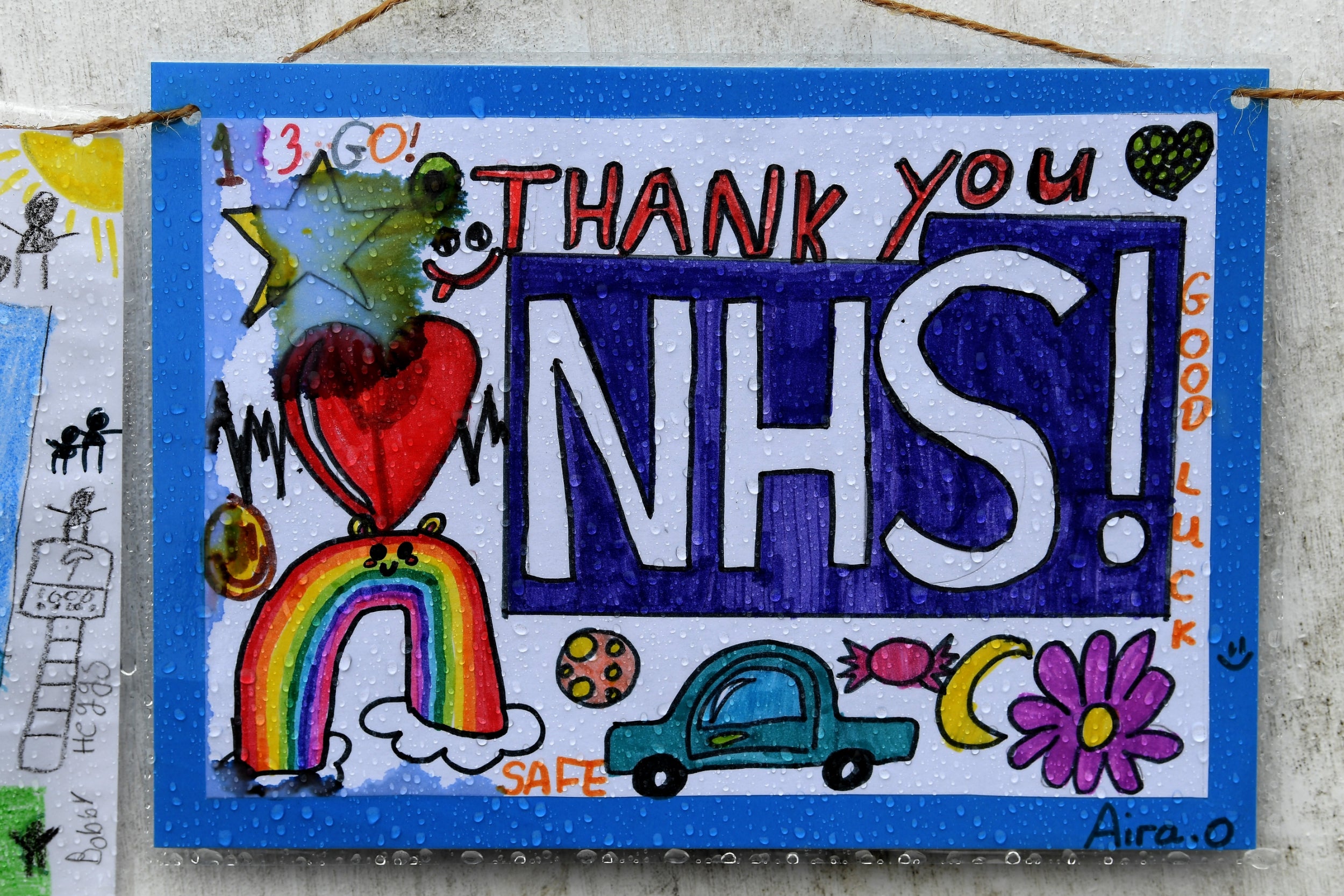
9/30
A school children’s poster hanging outside Glenfield Hospital during a minute’s silence
Getty
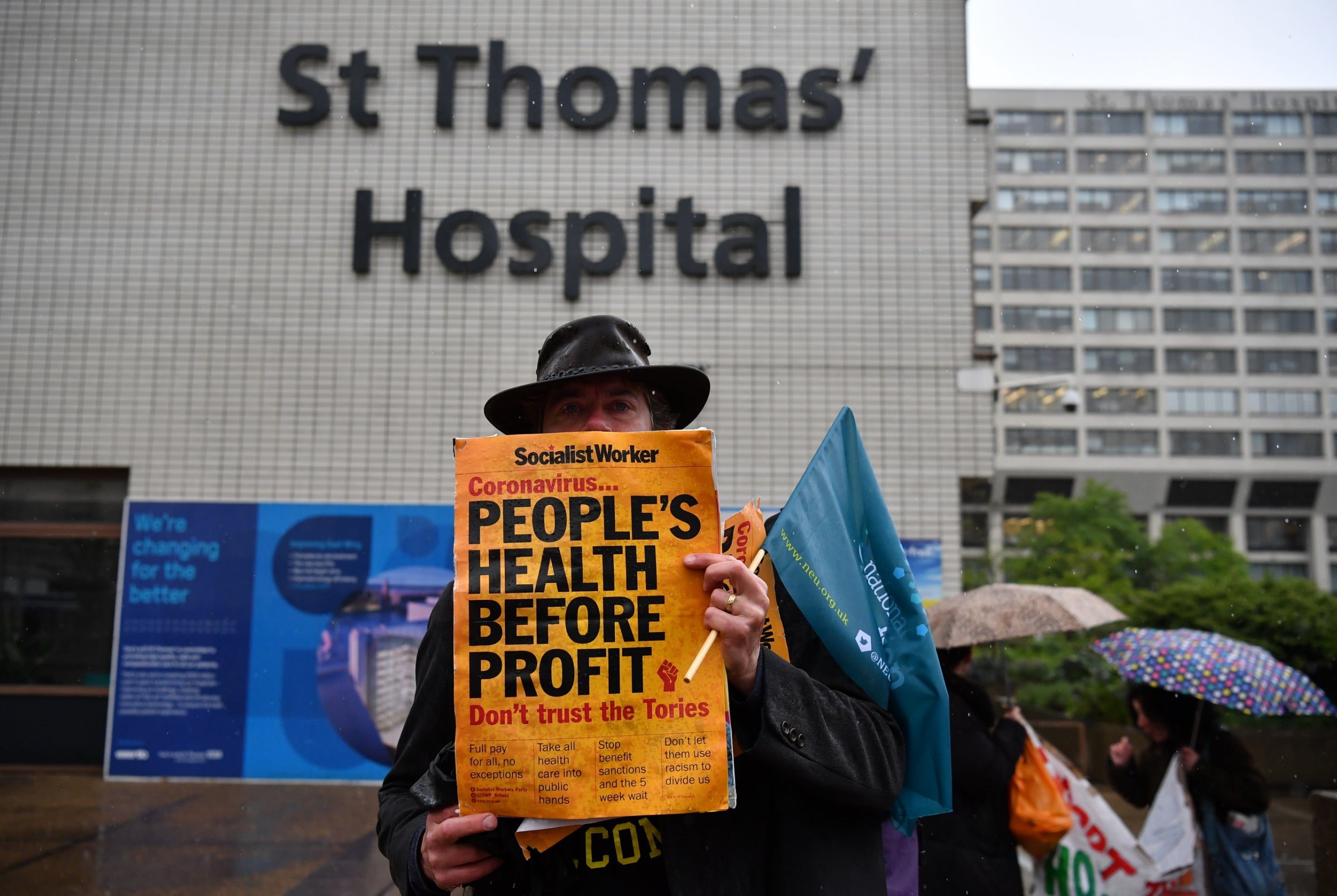
10/30
A man holds a placard that reads “People’s health before profit” outside St Thomas hospital
Getty
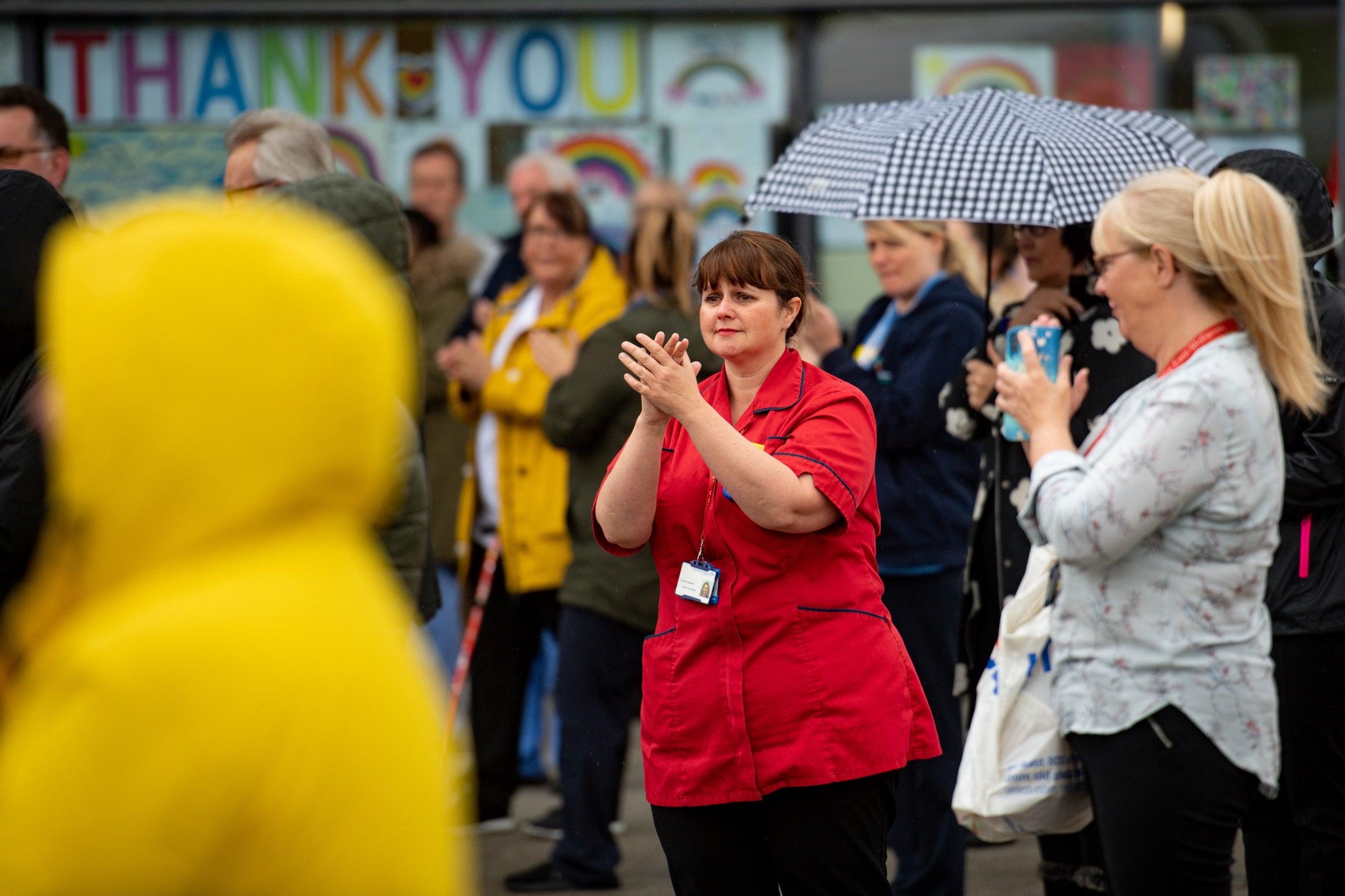
11/30
Staff members applaud outside the Royal Derby Hospital, following a minute’s silence
PA
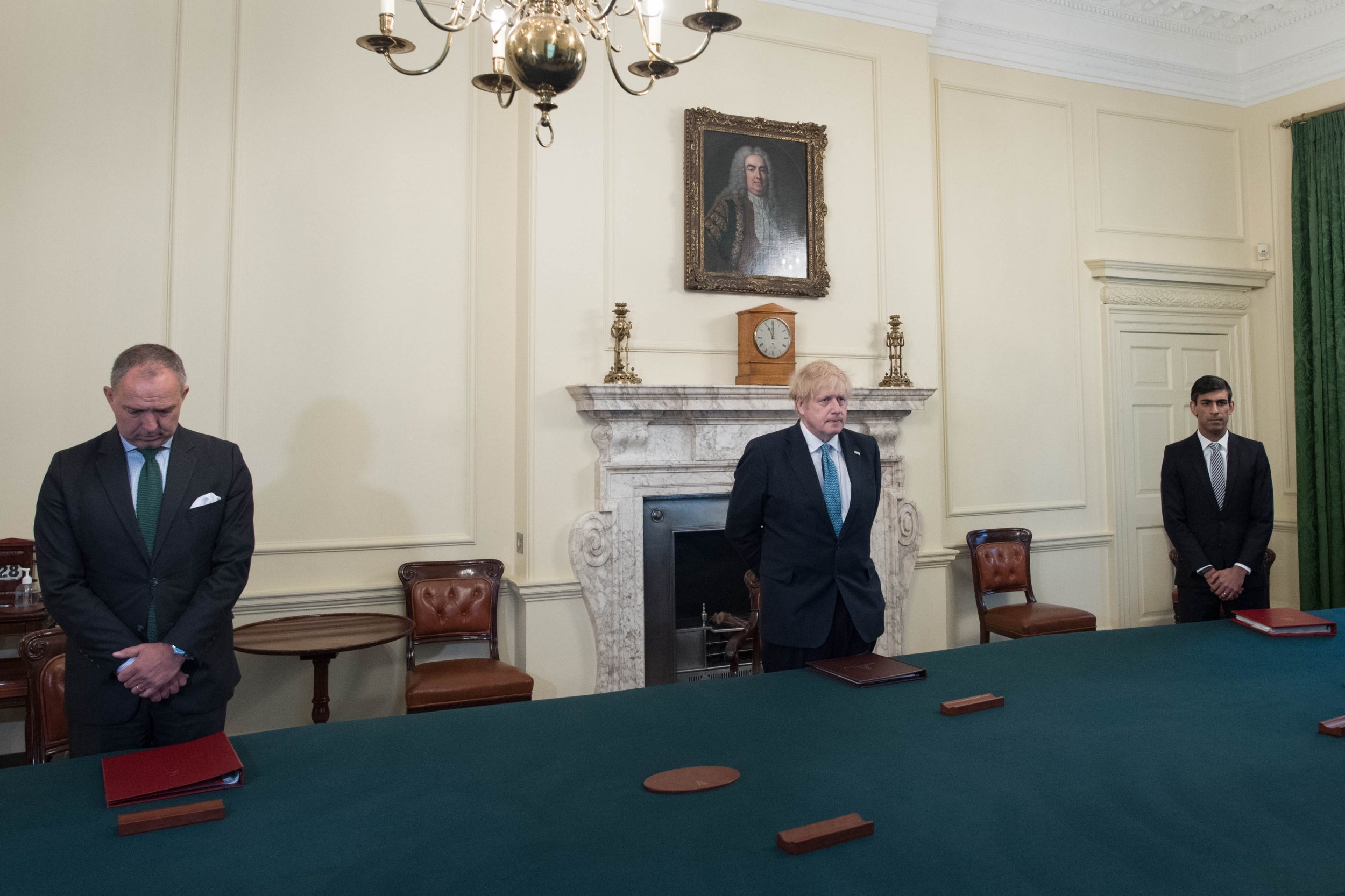
12/30
Cabinet Secretary Mark Sedwill, Prime minister Boris Johnson and Chancellor of the Exchequer Rishi Sunak, stand inside 10 Downing Street, London, to observe a minutes silence in tribute to the NHS staff and key workers who have died during the coronavirus outbreak
PA
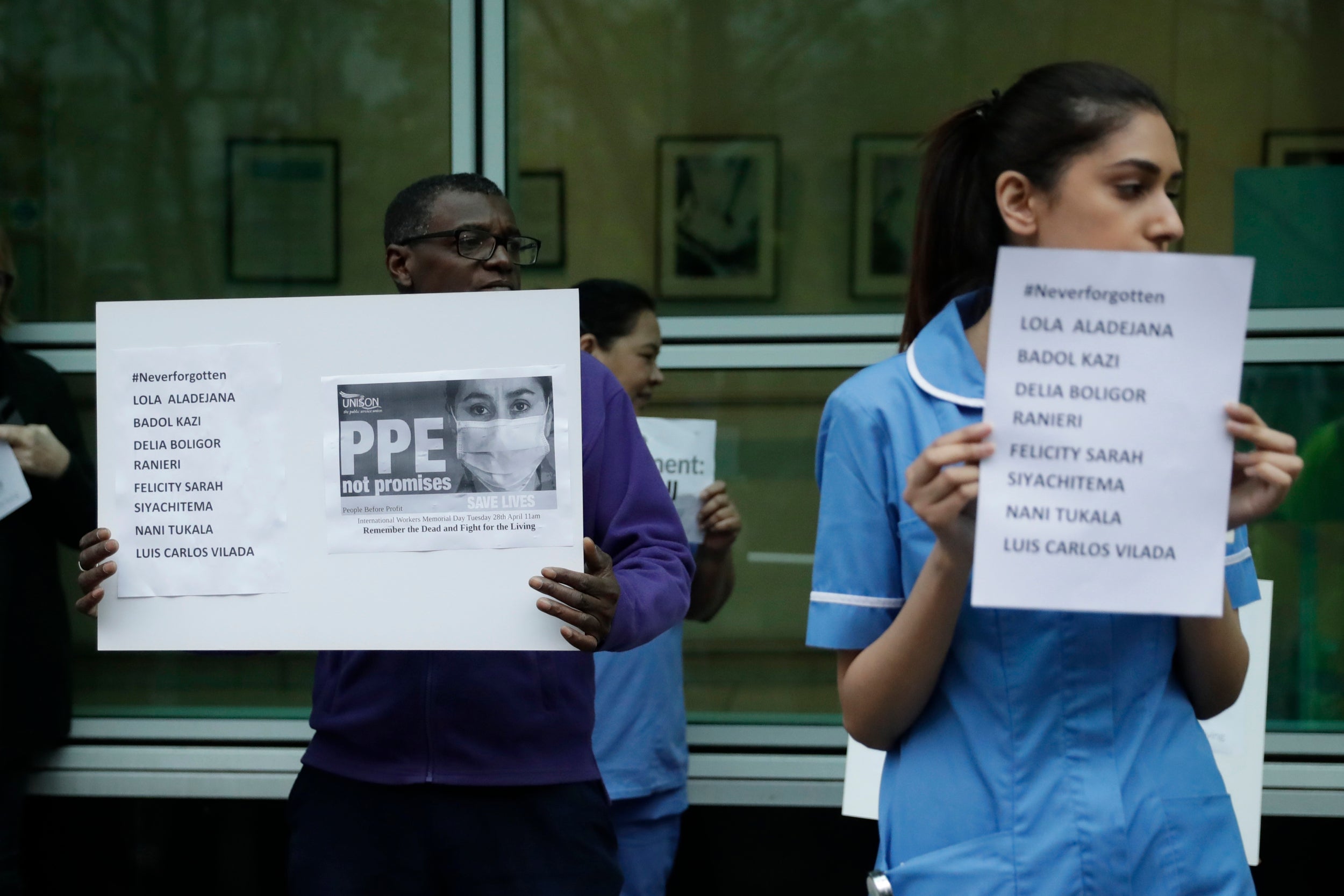
13/30 University College Hospital, London
Hospital workers hold placards with the names of their colleagues who have died from coronavirus as they take part in a protest calling on the British government to provide PPE
AP
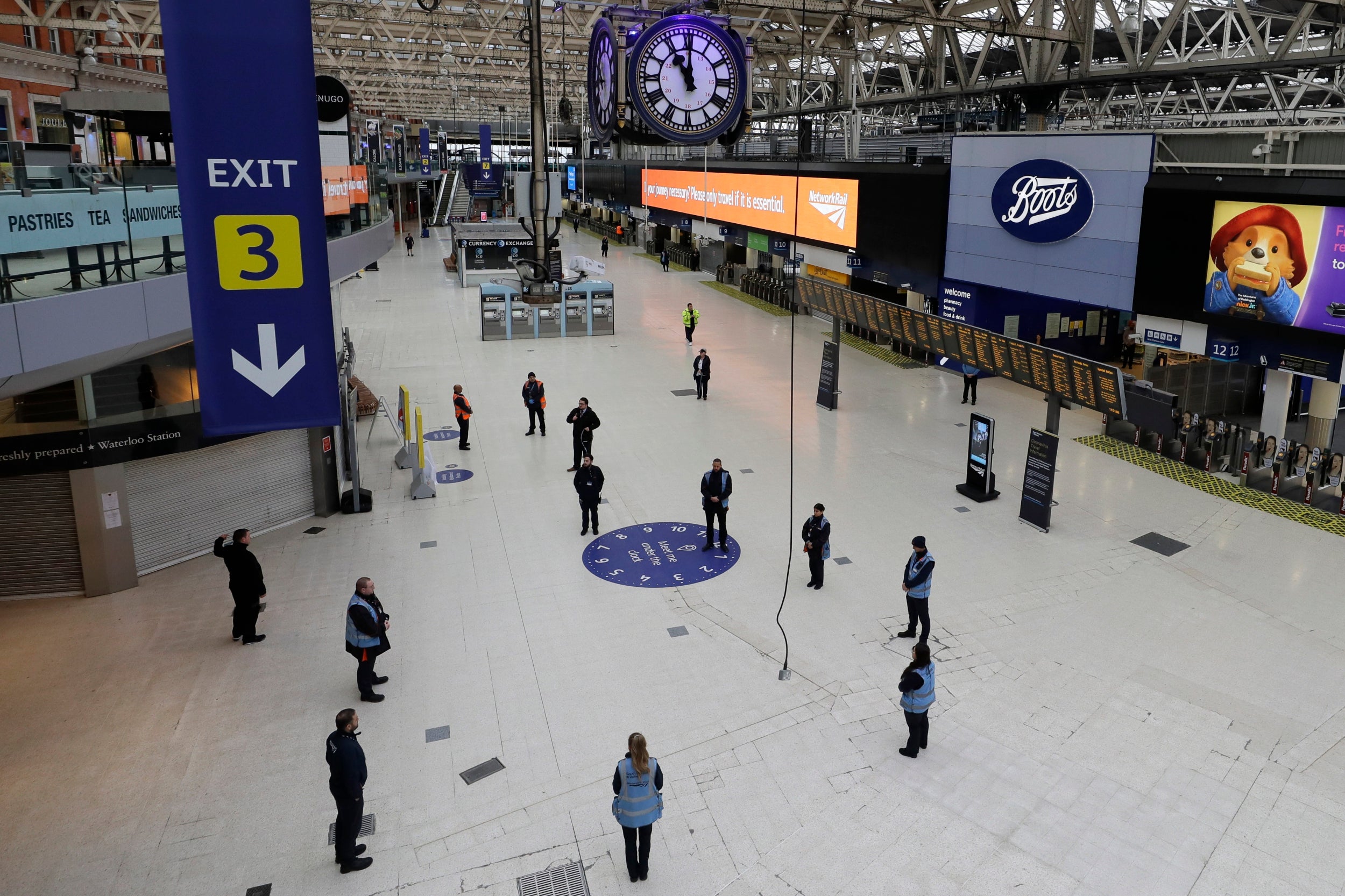
14/30
Staff at Waterloo Station in London, stand to observe a minute’s silence, to pay tribute to NHS and key workers who have died with coronavirus
AP
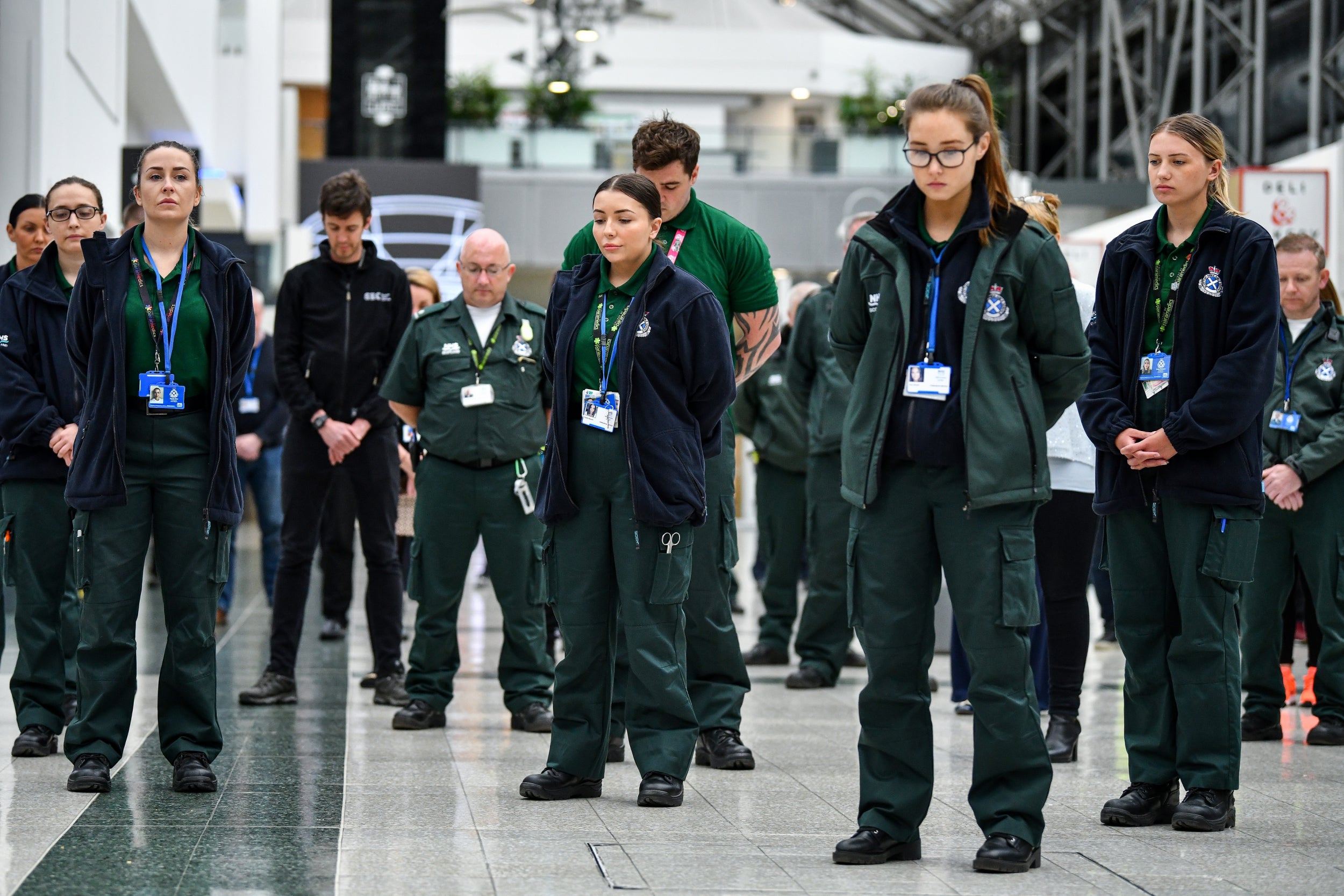
15/30
Medical staff at the Louisa Jordan hospital stand during a UK wide minutes silence to commemorate the key workers who have died with coronavirus in Glasgow
Getty
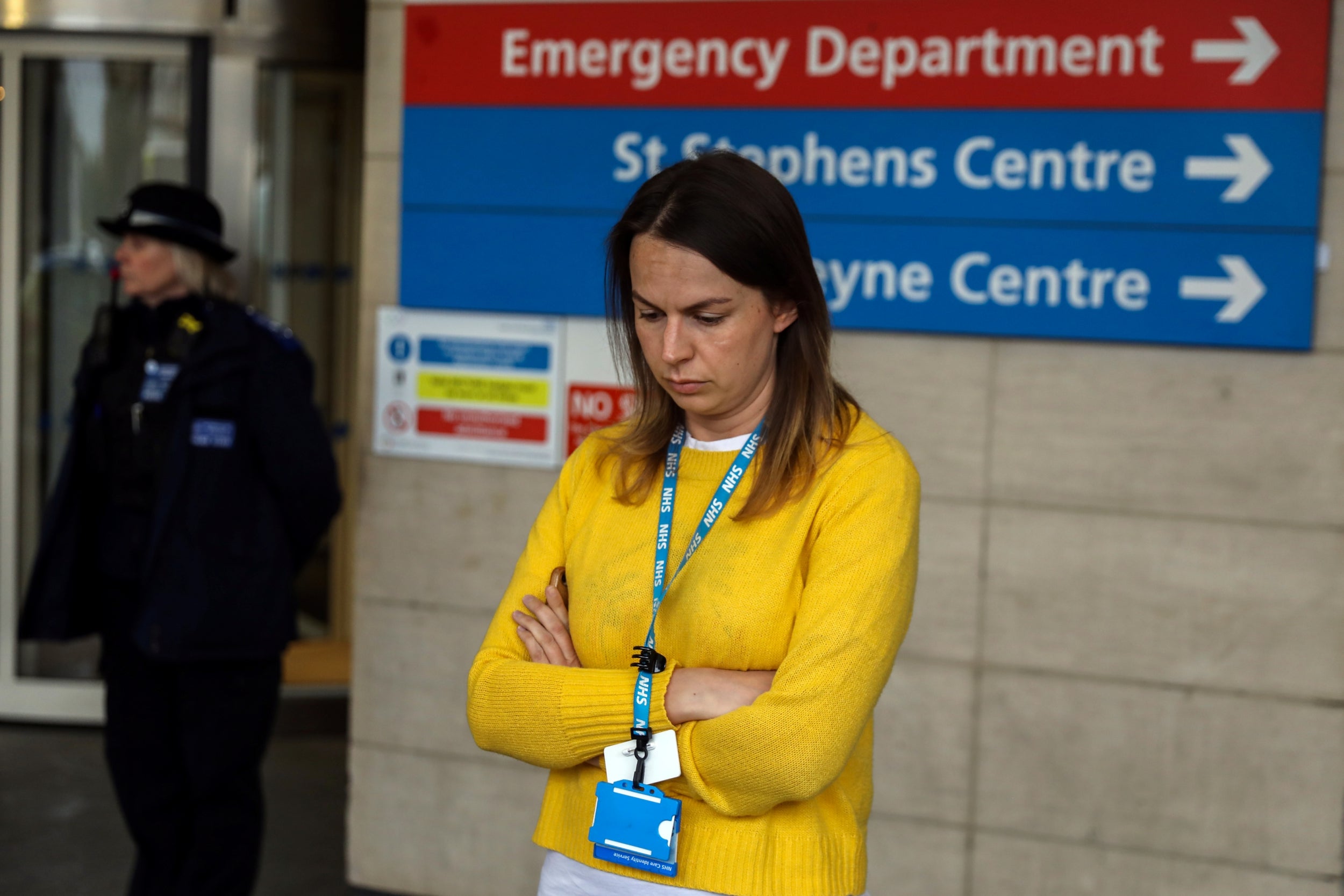
16/30 London
An NHS worker observes a minute’s silence at Chelsea and Westminster Hospital
Reuters
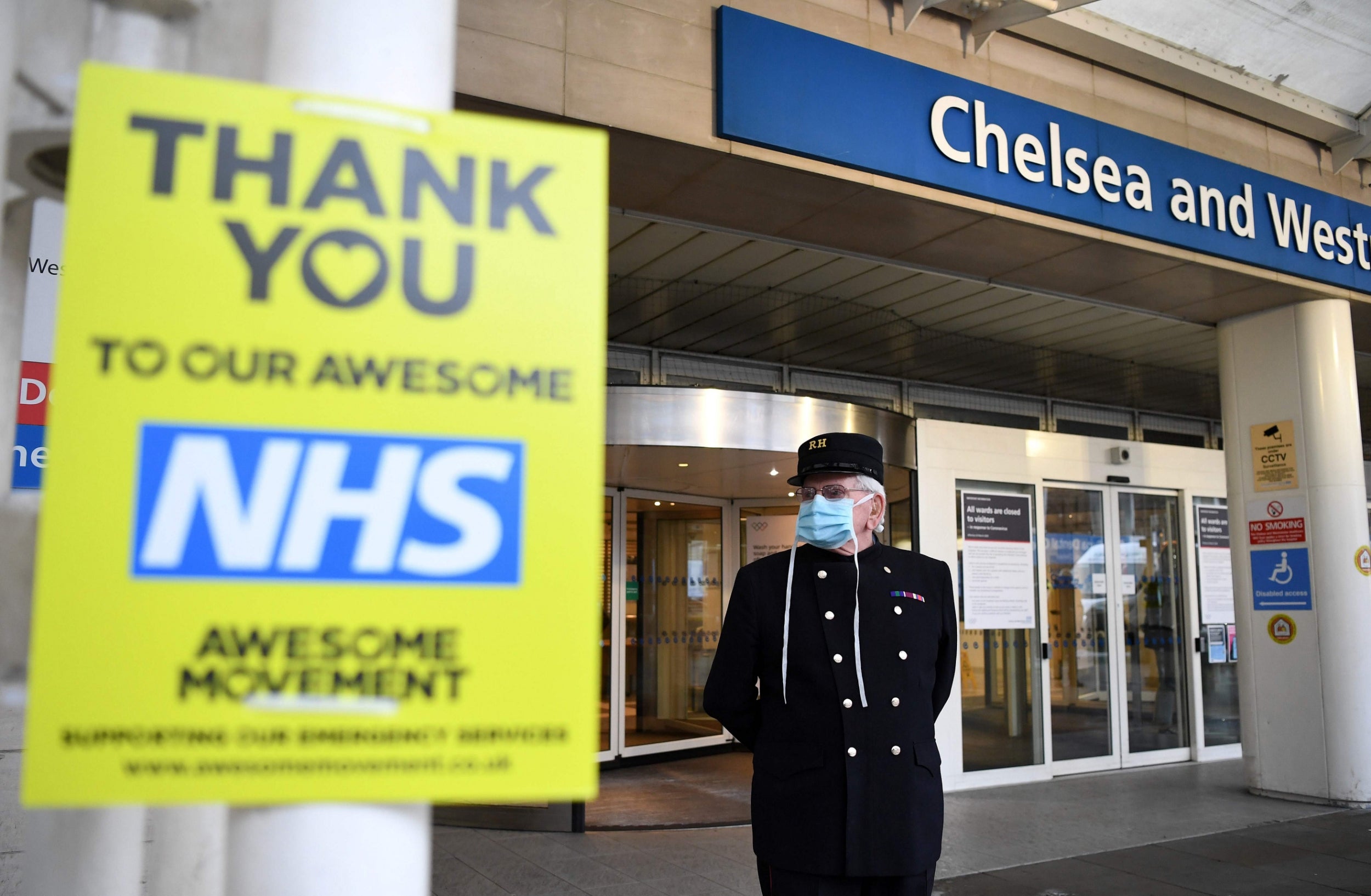
17/30 Chelsea and Westminster Hospital in London
AFP via Getty
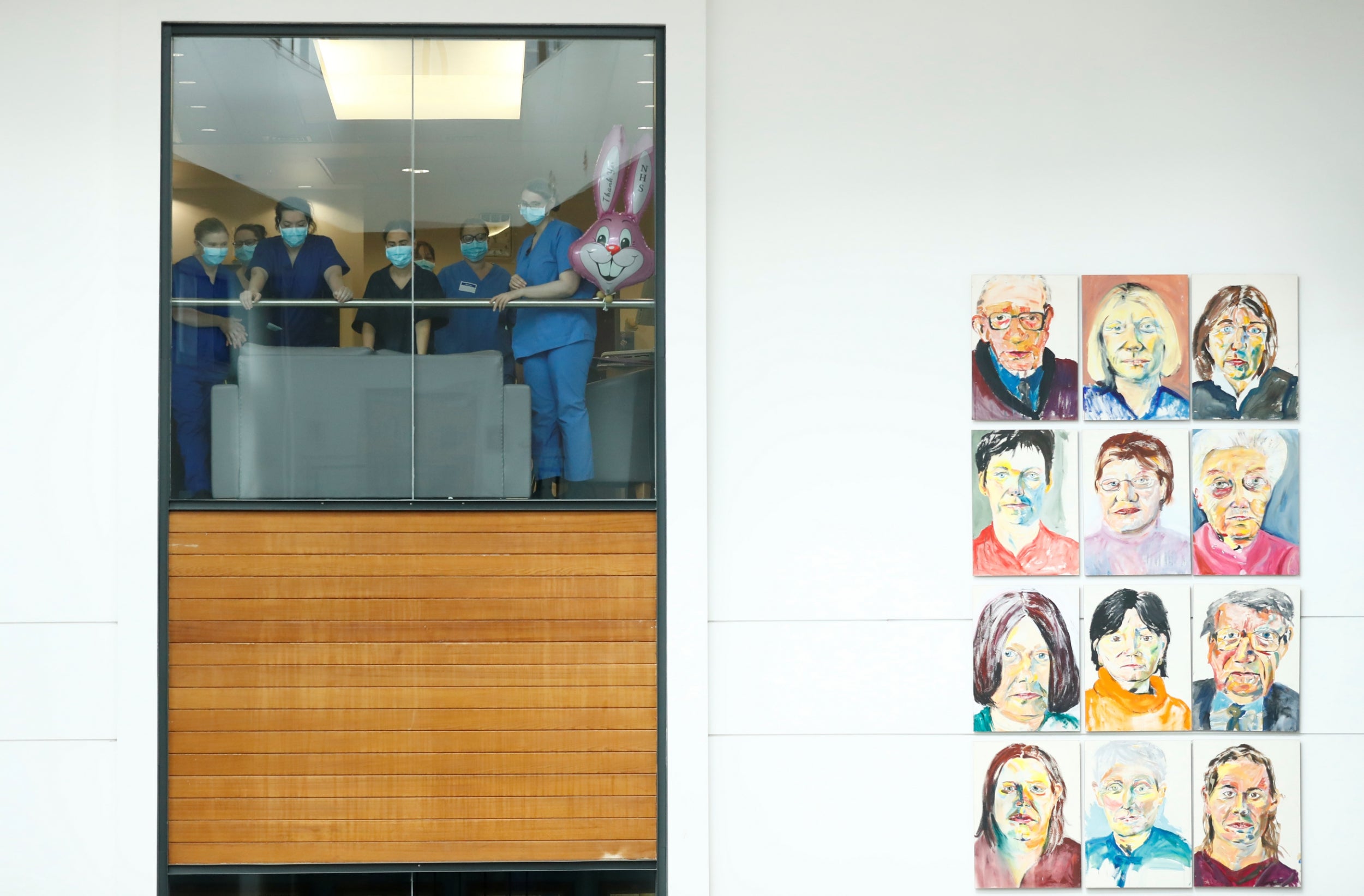
18/30 Belfast, Northern Ireland
NHS staff observe a minutes silence at Mater Infirmorum Hospital
Reuters
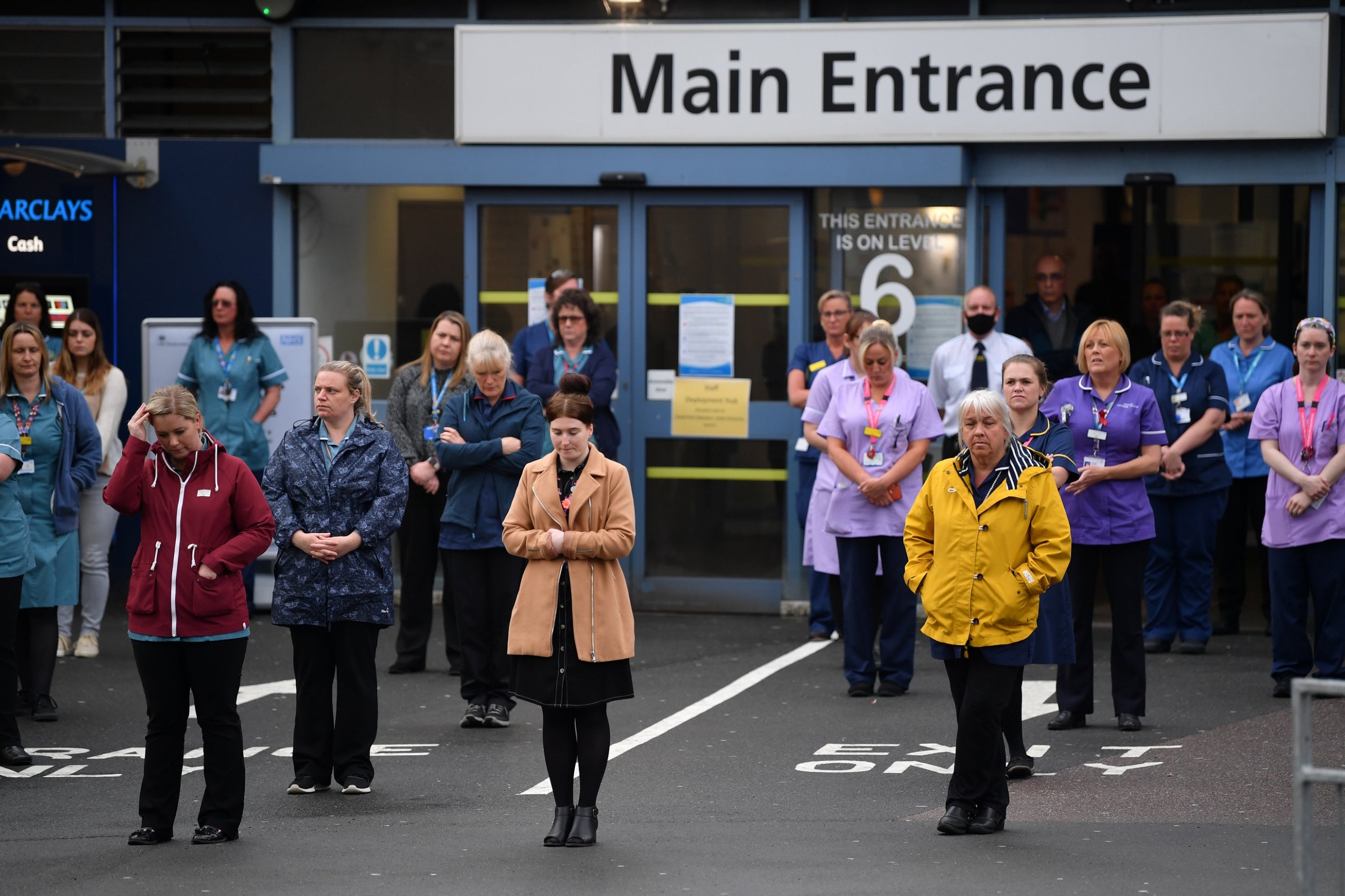
19/30 Plymouth
NHS workers hold a minute’s silence outside the main entrance of Derriford Hospital
Getty
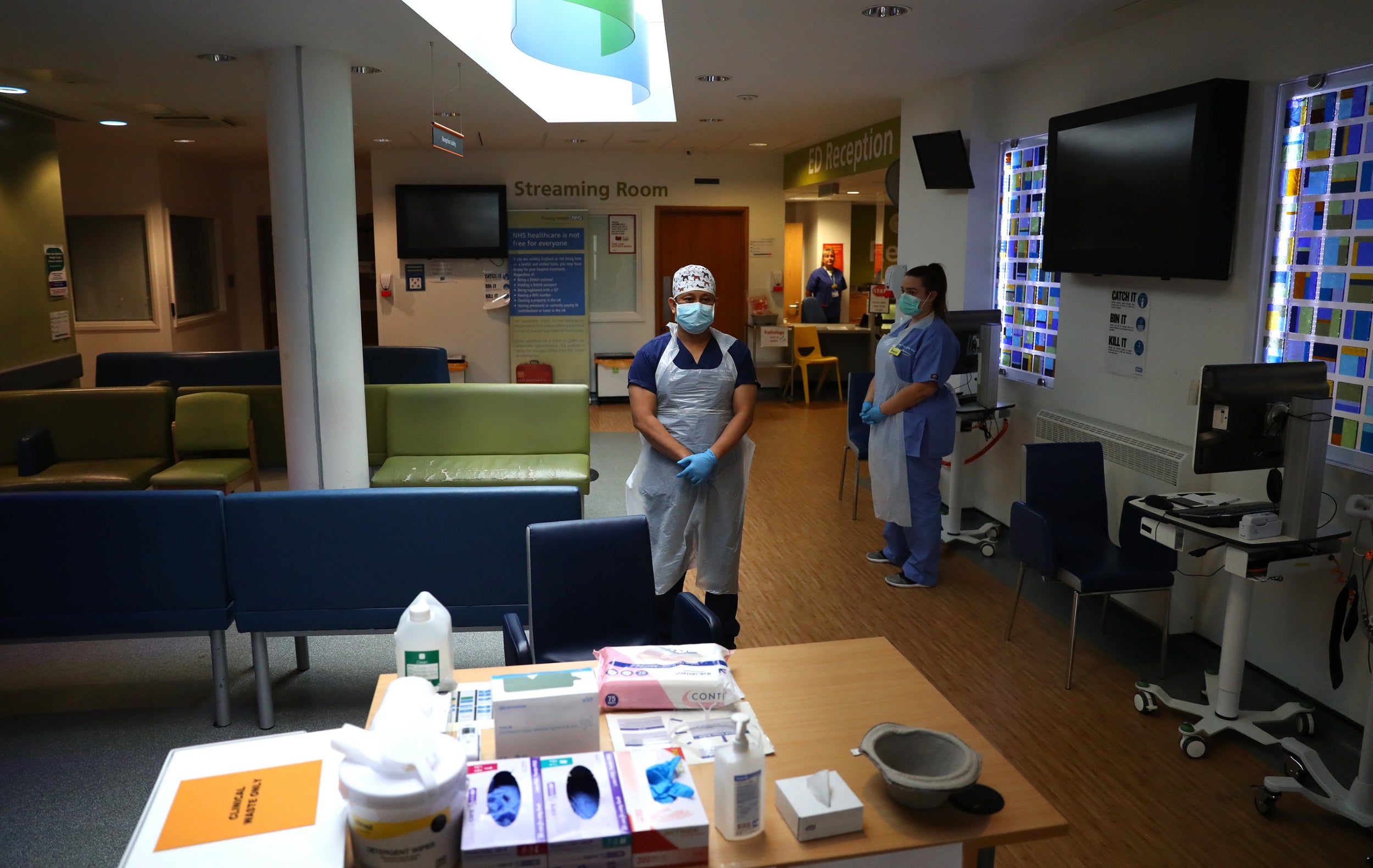
20/30
NHS Frimley Park Hospital staff at the A&E department observe a minute’s silence
Getty
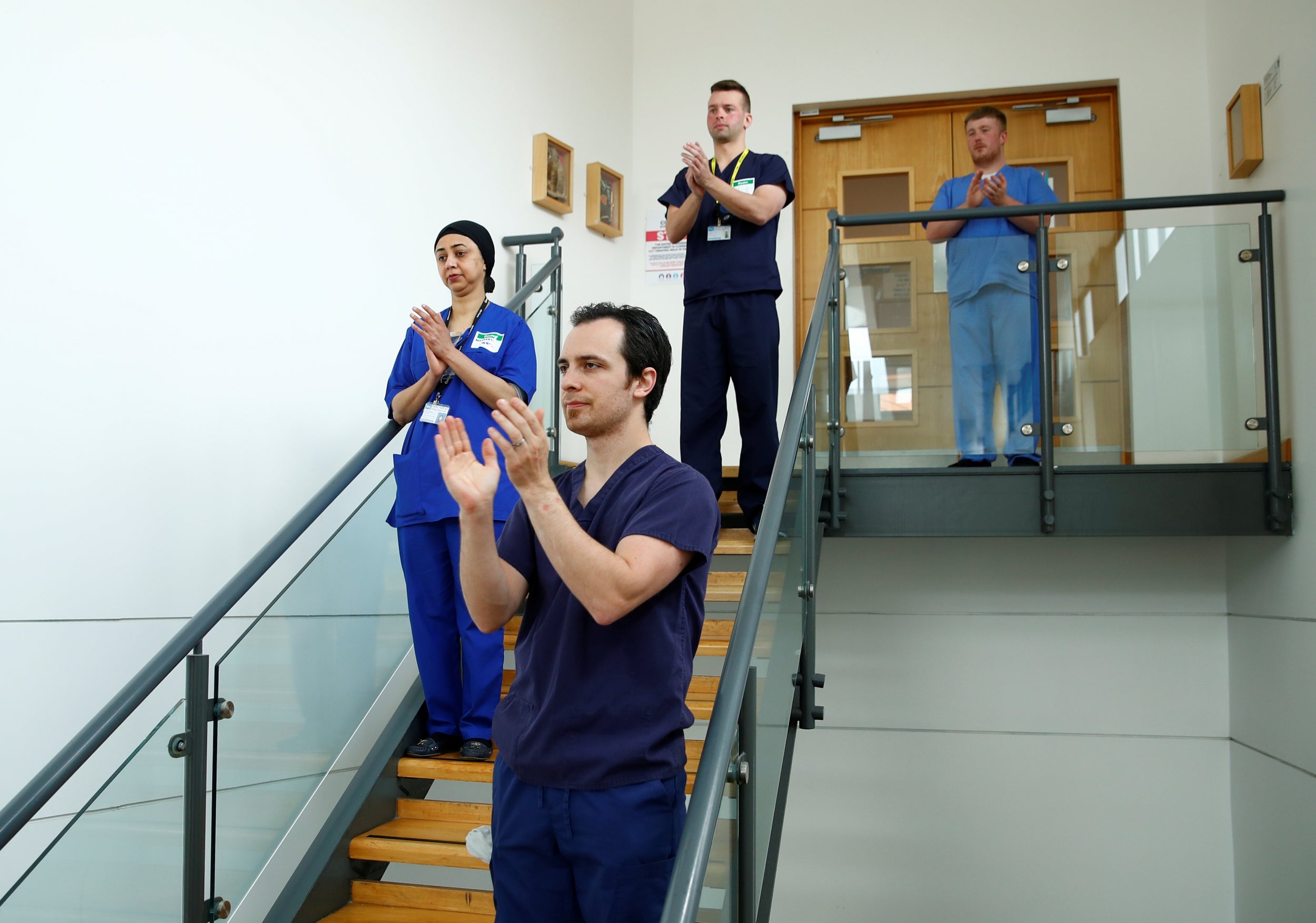
21/30 Mater Infirmorum Hospital
People applaud after a minutes silence in honour of key workers
Reuters
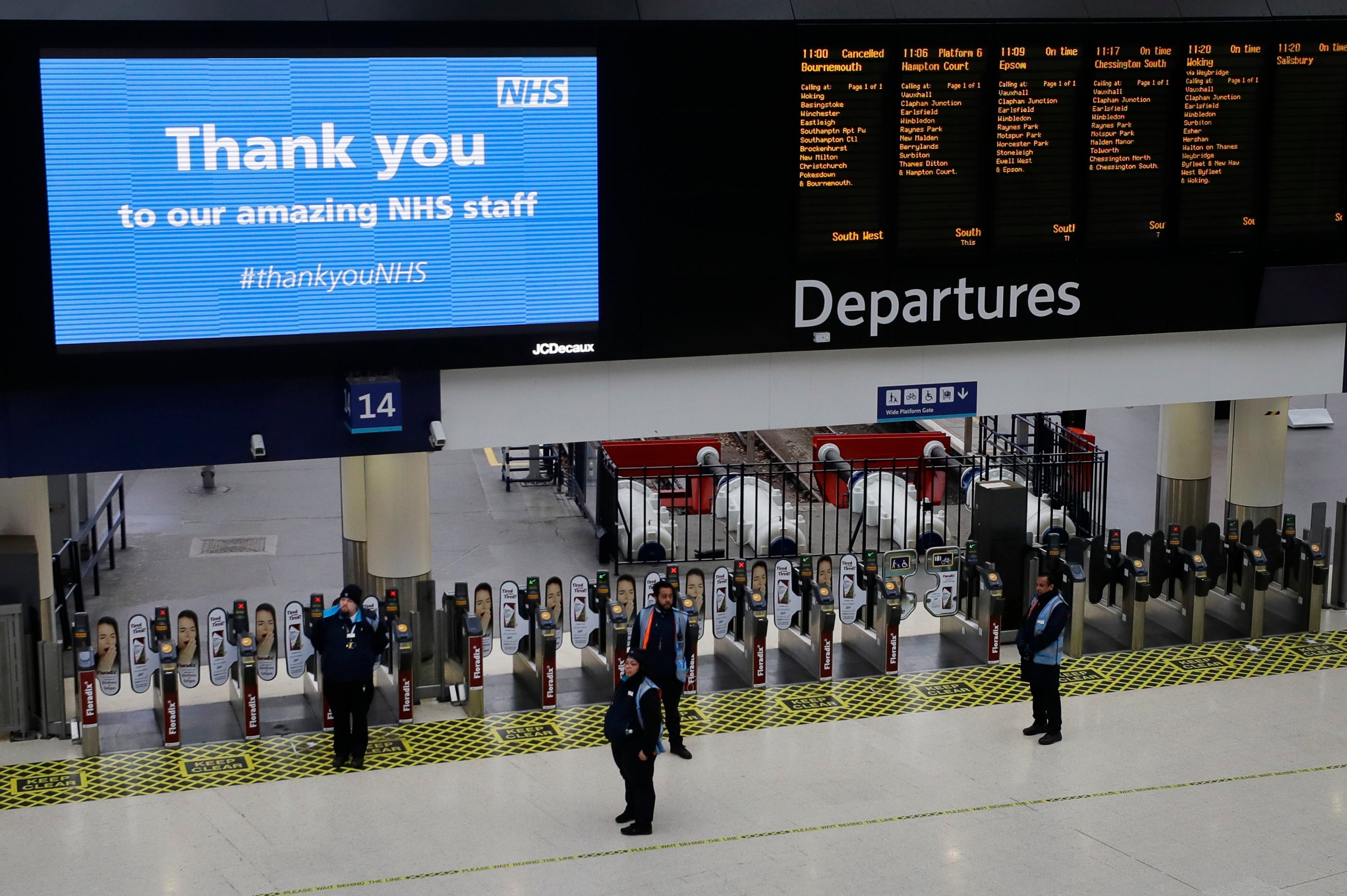
22/30 Waterloo Station, London
AP
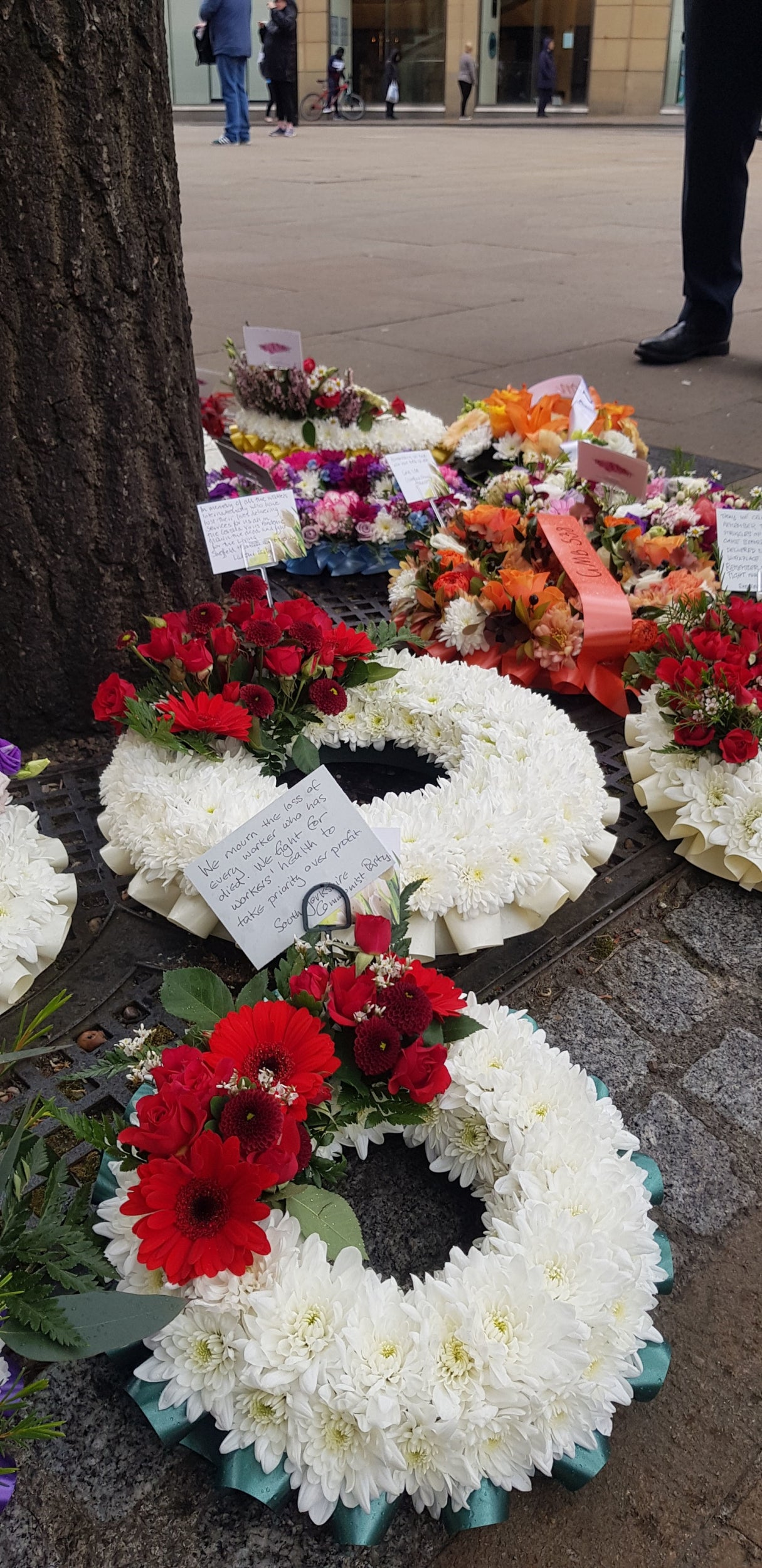
23/30
Wreaths laid outside Sheffield town hall
PA
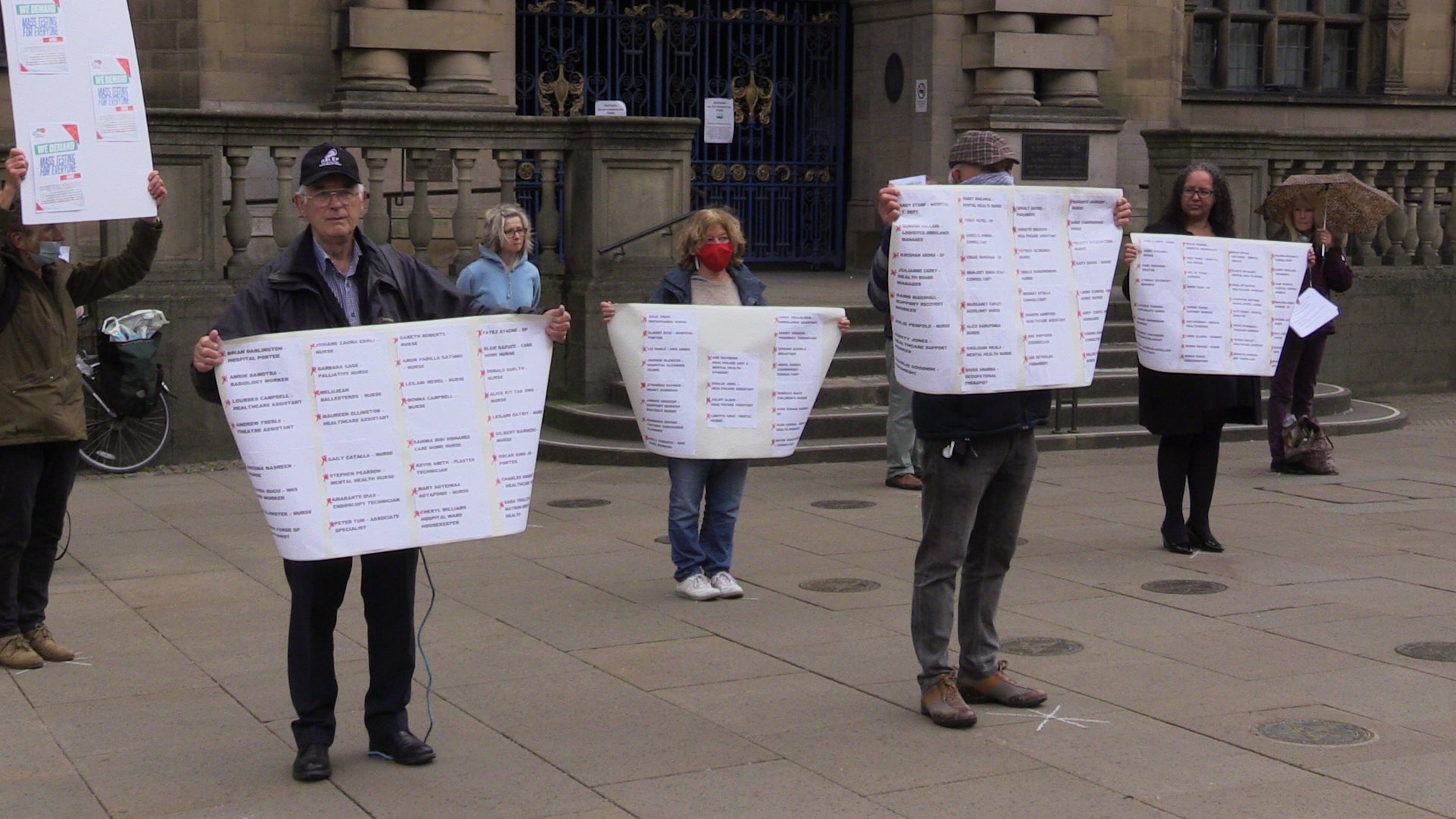
24/30
A group of trade unionists and supporters standing outside Sheffield town hall
PA
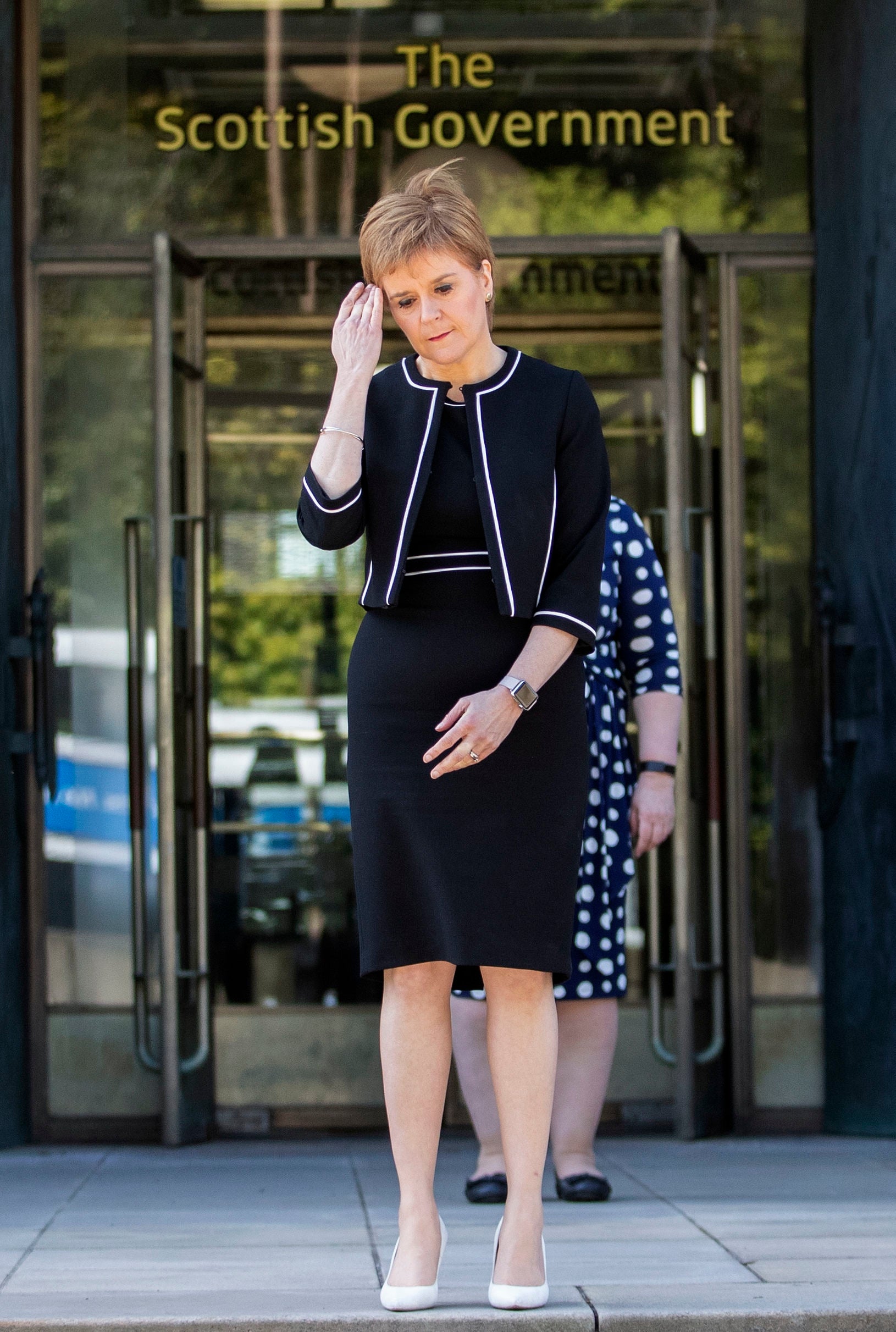
25/30
First Minister Nicola Sturgeon stands outside St Andrew’s House in Edinburgh to observe a minute’s silence in tribute to the NHS staff and key workers who have died during the coronavirus outbreak
PA
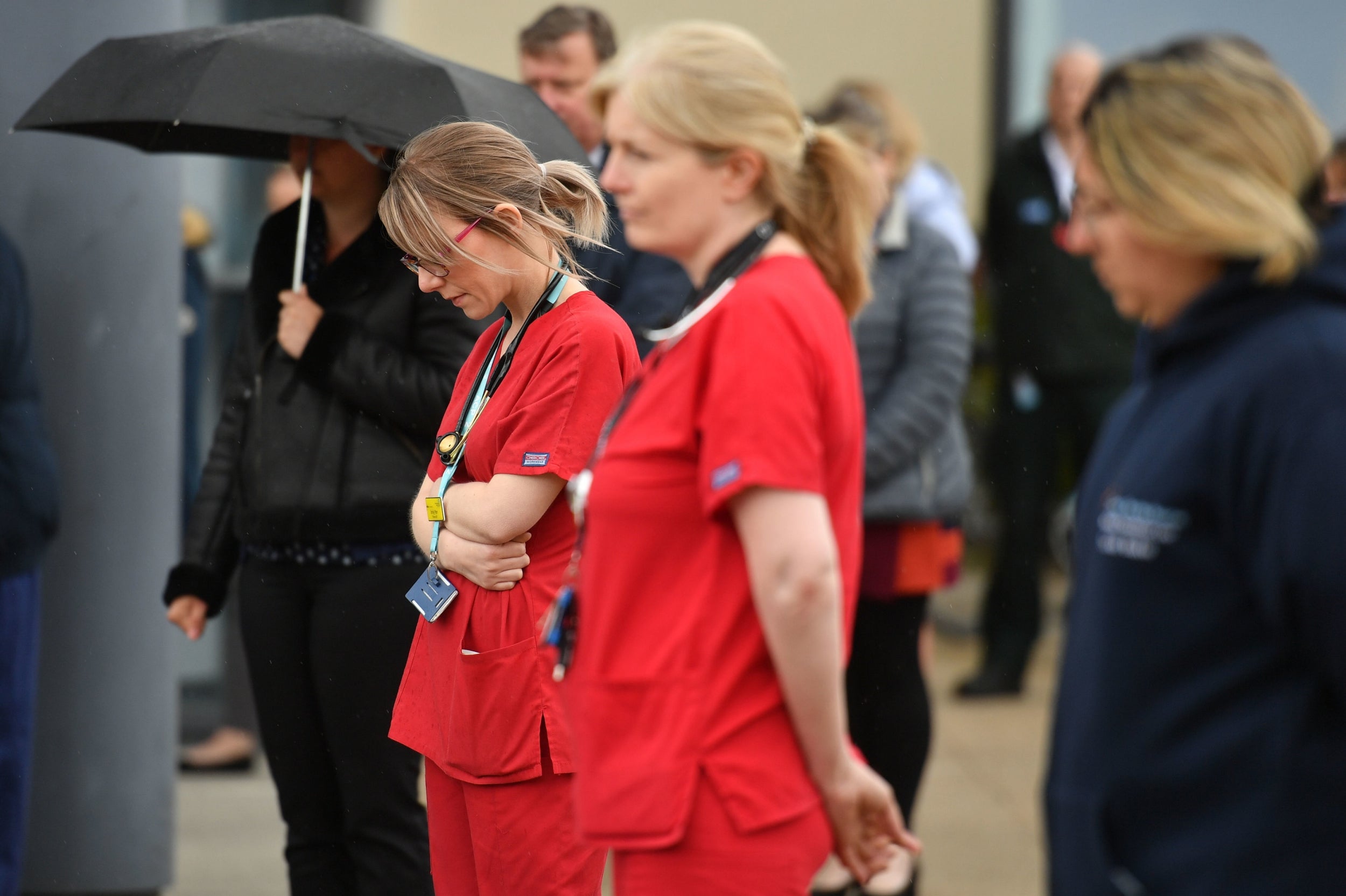
26/30
Staff stand outside the Royal Derby Hospital, during a minutes silence
PA
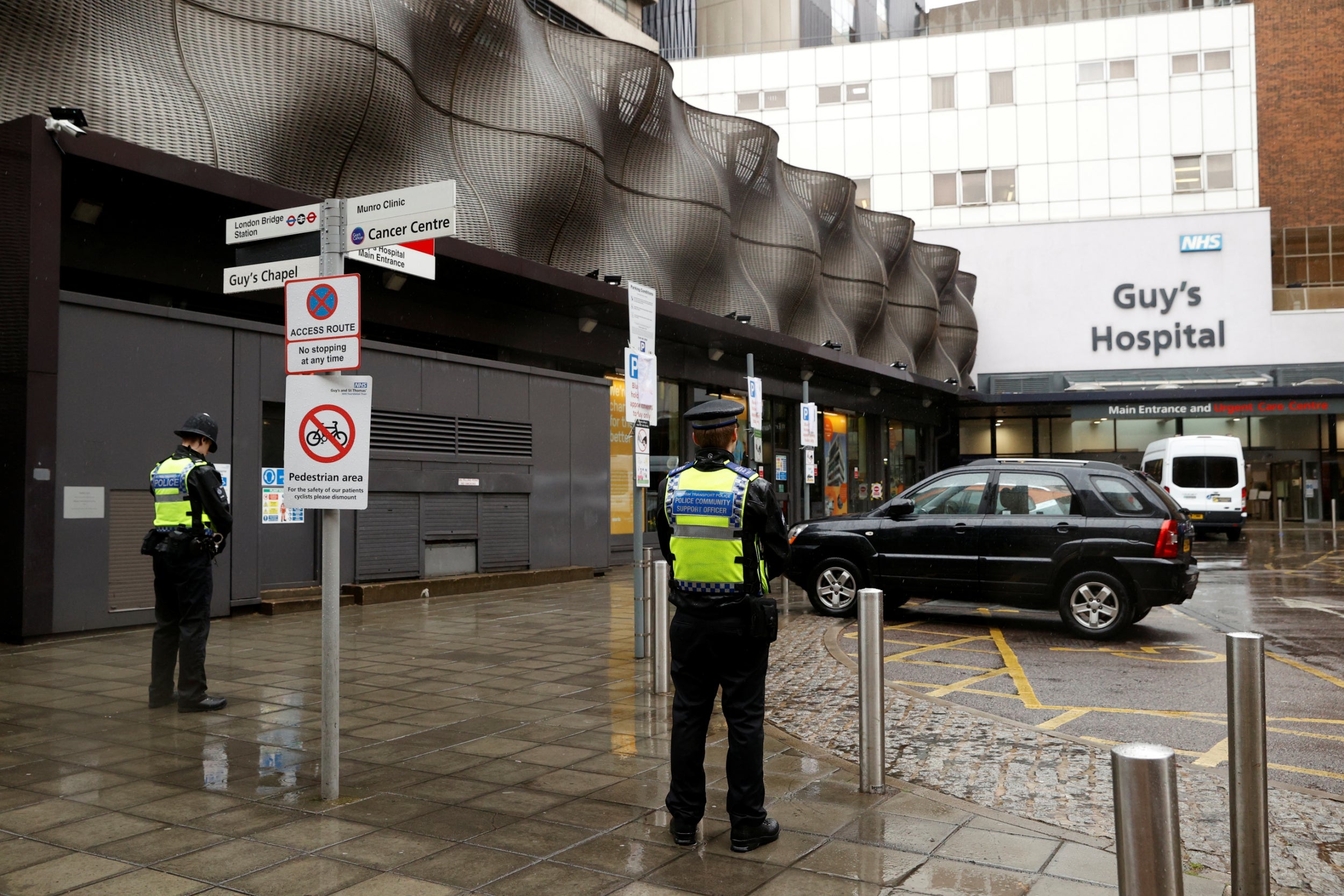
27/30 London
Police officers observe a minutes silence at Guy’s Hospital
Reuters
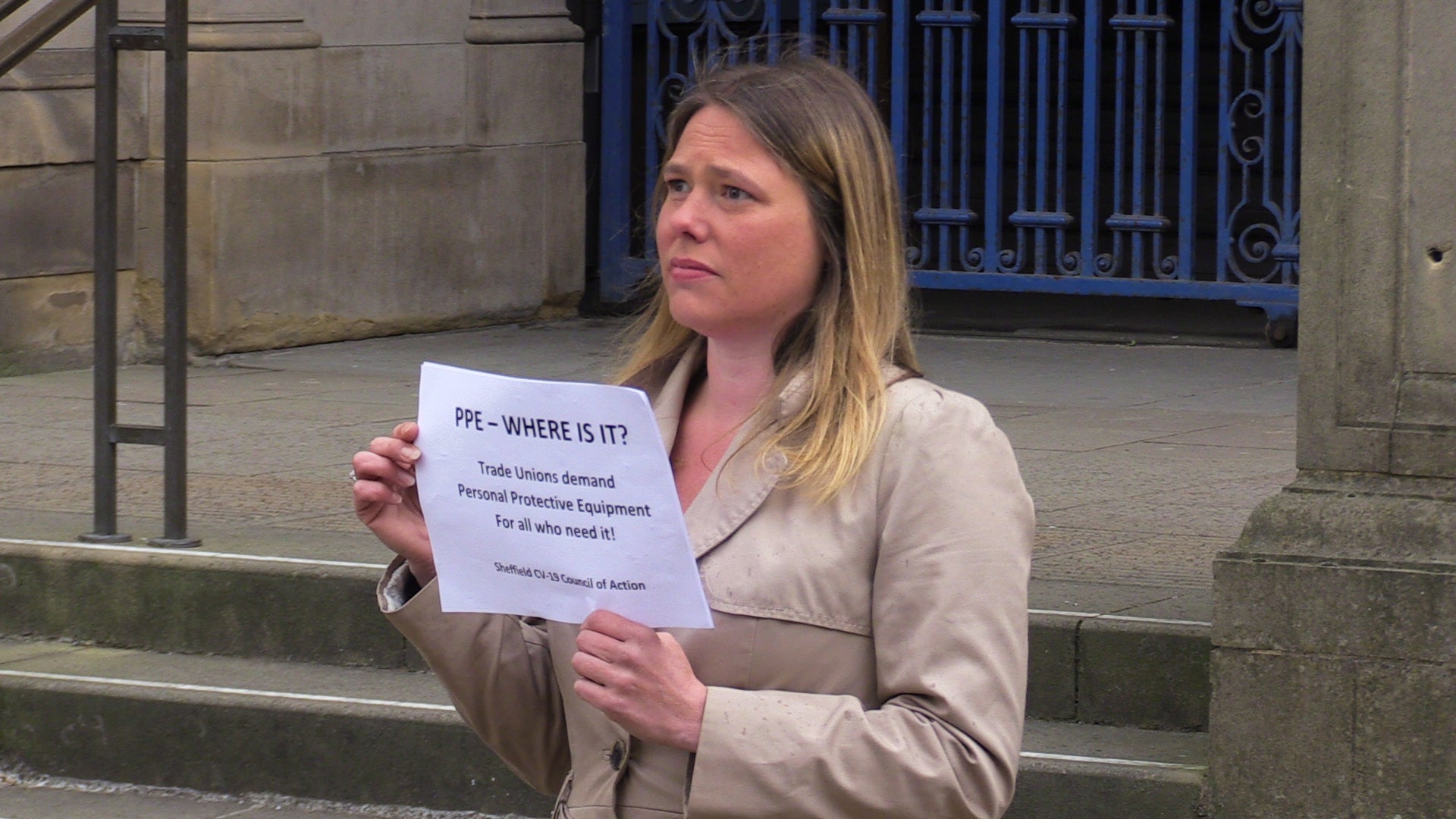
28/30
A woman standing outside Sheffield town hall
PA
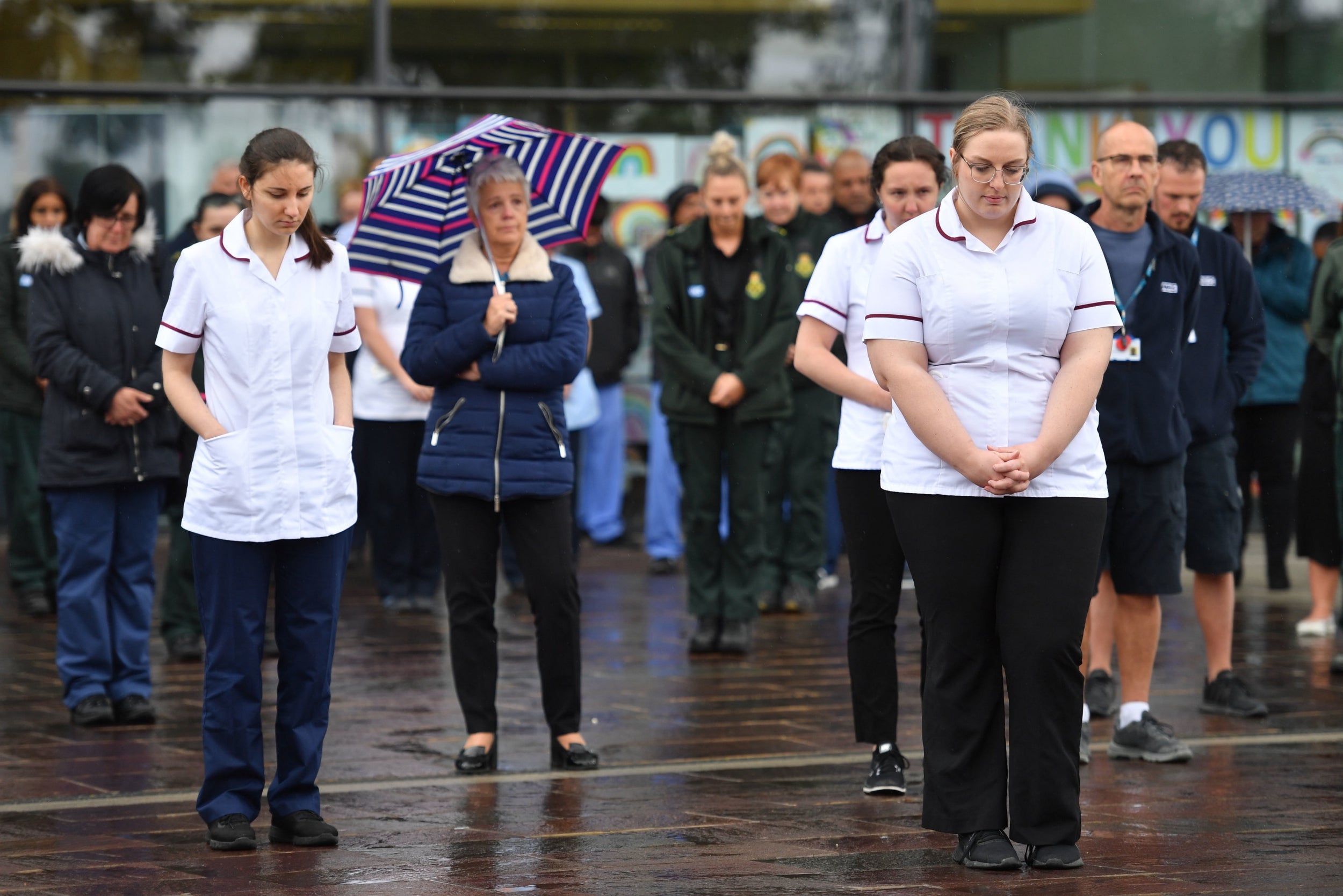
29/30 Royal Derby Hospital
PA
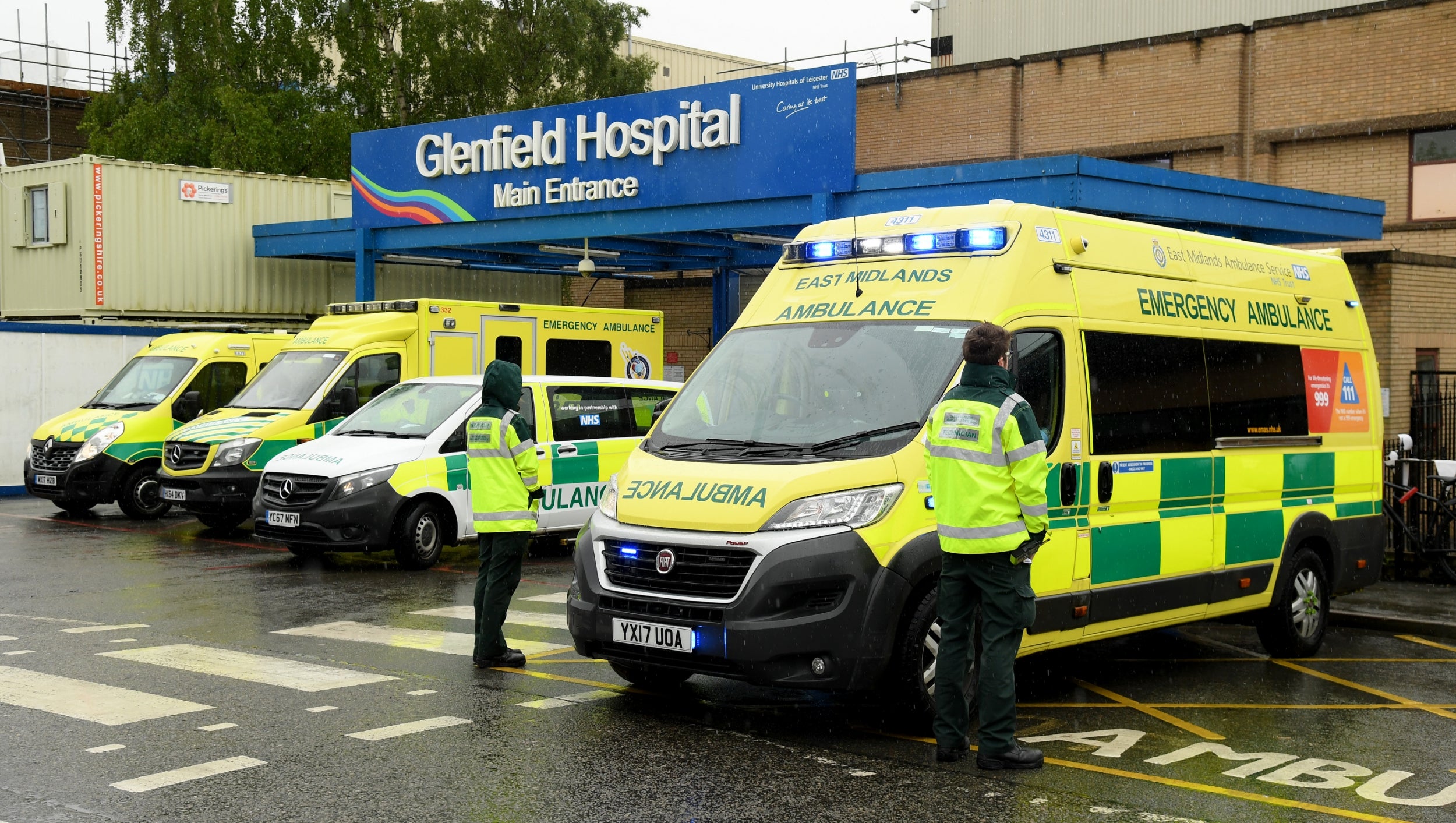
30/30 Leicester,
NHS workers during a minute’s silence outside Glenfield Hospital
Getty

1/30
Staff react outside Salford Royal Hospital in Manchester during a minute’s silence to pay tribute to the NHS staff and key workers who have died during the coronavirus outbreak
PA

2/30
Staff inside Camberwell bus depot in London, during a minute’s silence
PA

3/30
NHS staff at the Mater hospital in Belfast, during a minute’s silence to pay tribute to the NHS staff and key workers who have died during the coronavirus outbreak.
PA

4/30
Shoppers observe a minute’s silence in Tescos in Shoreham
Getty

5/30
Firefighters outside Godstone fire station
PA

6/30 Salford Royal Hospital
Getty

7/30 Salford Royal Hospital
PA

8/30
Hospital workers take part in a protest calling on the British government to provide PPE across Britain for all workers in care, the NHS and other vital public services after a nationwide minute’s silence at University College Hospital in London
AP

9/30
A school children’s poster hanging outside Glenfield Hospital during a minute’s silence
Getty

10/30
A man holds a placard that reads “People’s health before profit” outside St Thomas hospital
Getty

11/30
Staff members applaud outside the Royal Derby Hospital, following a minute’s silence
PA

12/30
Cabinet Secretary Mark Sedwill, Prime minister Boris Johnson and Chancellor of the Exchequer Rishi Sunak, stand inside 10 Downing Street, London, to observe a minutes silence in tribute to the NHS staff and key workers who have died during the coronavirus outbreak
PA

13/30 University College Hospital, London
Hospital workers hold placards with the names of their colleagues who have died from coronavirus as they take part in a protest calling on the British government to provide PPE
AP

14/30
Staff at Waterloo Station in London, stand to observe a minute’s silence, to pay tribute to NHS and key workers who have died with coronavirus
AP

15/30
Medical staff at the Louisa Jordan hospital stand during a UK wide minutes silence to commemorate the key workers who have died with coronavirus in Glasgow
Getty

16/30 London
An NHS worker observes a minute’s silence at Chelsea and Westminster Hospital
Reuters

17/30 Chelsea and Westminster Hospital in London
AFP via Getty

18/30 Belfast, Northern Ireland
NHS staff observe a minutes silence at Mater Infirmorum Hospital
Reuters

19/30 Plymouth
NHS workers hold a minute’s silence outside the main entrance of Derriford Hospital
Getty

20/30
NHS Frimley Park Hospital staff at the A&E department observe a minute’s silence
Getty

21/30 Mater Infirmorum Hospital
People applaud after a minutes silence in honour of key workers
Reuters

22/30 Waterloo Station, London
AP

23/30
Wreaths laid outside Sheffield town hall
PA

24/30
A group of trade unionists and supporters standing outside Sheffield town hall
PA

25/30
First Minister Nicola Sturgeon stands outside St Andrew’s House in Edinburgh to observe a minute’s silence in tribute to the NHS staff and key workers who have died during the coronavirus outbreak
PA

26/30
Staff stand outside the Royal Derby Hospital, during a minutes silence
PA

27/30 London
Police officers observe a minutes silence at Guy’s Hospital
Reuters

28/30
A woman standing outside Sheffield town hall
PA

29/30 Royal Derby Hospital
PA

30/30 Leicester,
NHS workers during a minute’s silence outside Glenfield Hospital
Getty
He told the daily Downing Street briefing: “I’m finding I have to wear spectacles for the first time in years, I think because of the effects of this thing. So I’m inclined to think that’s very, very plausible, that eyesight can be a problem associated with coronavirus.”
However, it is not the first time the PM has complained of poor vision. In 2014, he told an interviewer: “I’m now so short-sighted, I’m blind! My eyes used to be fantastic but now…”
Giving his account of the visit to Barnard Castle in a press conference in the 10 Downing Street garden, Mr Cummings said that he had wanted to return to London to rejoin colleagues working on the government’s coronavirus response, and had sought medical advice and been told it was safe for him to do so.
But he said his wife was particularly concerned because his eyesight appeared to have been affected by the coronavirus infection which had left him in bed for much of the previous fortnight.
“My wife was very worried, particularly because my eyesight seemed to have been affected by the disease,” he said. “She didn’t want to risk a nearly 300 mile drive with our child, given how ill I had been.
The latest news on Brexit, politics and beyond direct to your inbox
“We agreed to go for a short drive to see if I could drive safely. I drove for roughly half an hour and we ended up on the outskirts of Barnard Castle town.
“We didn’t visit the castle, we didn’t walk around the town. We parked by a river.
“My wife and I discussed the situation, we agreed I could drive safely and we turn around and go home.
“I felt a bit sick. We walked about 10-15 metres from the car to the riverbank nearby. We sat there for 15 minutes and had no interactions with anybody. I felt better, we returned to the car.
“An elderly gentleman walking nearby appeared to recognise me. My wife wished him Happy Easter from a distance but we had no other interaction.”
Mr Cummings said that he and his wife set off for home, but within minutes their son was demanding the toilet.
“My wife and child jumped out into the woods at the side of the road. They were briefly outside. I briefly joined them. They played for a little bit. I got out of the car and we were briefly in the woods.
“We saw some people at a distance, but at no point did we breach any social distancing rules. We then got back in the car and went home.”
He said that they then returned to London on the evening of 13 April and he went back to work the following day.
But there were questions about why, if he was concerned that his poor eyesight made him unfit to drive, he had taken his wife and child with him on the drive to Barnard Castle.
Asked why he had decided to take the hour-long round trip rather than simply setting off for London and seeing whether he could cope with the driving, Mr Cummings said: “I’d been very ill. On Sunday the 12th, I said to my wife ‘Let’s pack up the car and go back. I’ve been cleared by doctors to go back to work’.
“She said – and I think it was perfectly reasonable – ‘A few days ago you could barely stand up. You said that your eyesight was weird. We shouldn’t just embark on a 270-mile journey and then find out halfway through that you actually can’t drive that far. So we should get in the car and see if you can actually drive’.
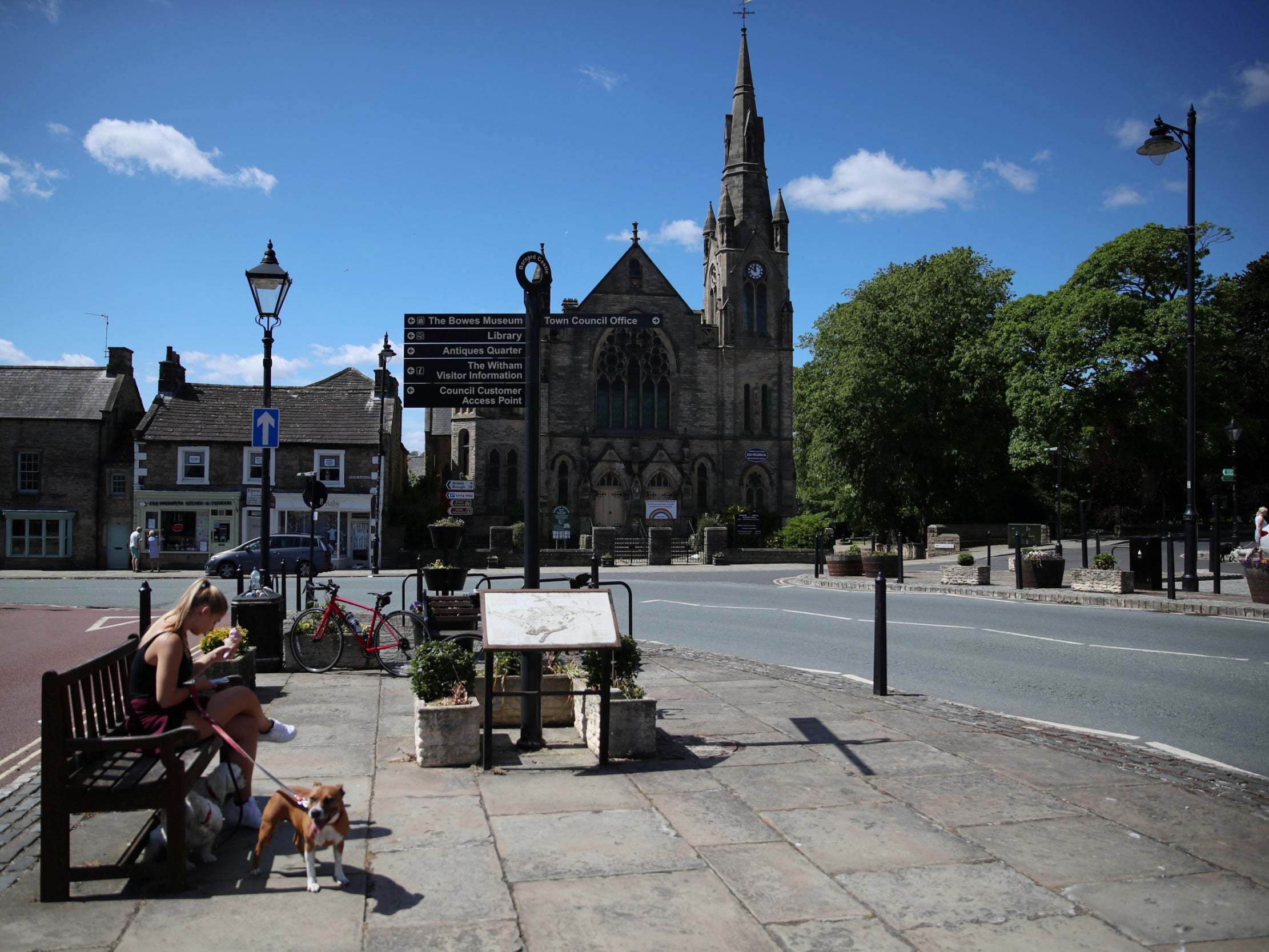
“The only way to avoid this problem would have been to say we would stay in Durham, which I could have done but I didn’t think was the right thing to do.
“I’d been told by expert medical advice that I wasn’t a danger to the public and I could go back to work in Downing Street on Monday and I was trying to do that in the safest way possible. I think that was a reasonable thing to do.”
He said that he and his wife had not considered heading towards London to find out how he coped, but instead decided “Let’s just whizz down the road and see how I feel”.
He added: “Do I regret not just trying to drive to London and seeing if I could do it? Perhaps we should have just cracked on and tried to do the whole trip, but the whole point was I had been extremely ill, my vision had been a bit weird, my wife said ‘We should drive down the road and see if your vision is weird or if you’re OK’ and I thought ‘That’s a good idea’.”


